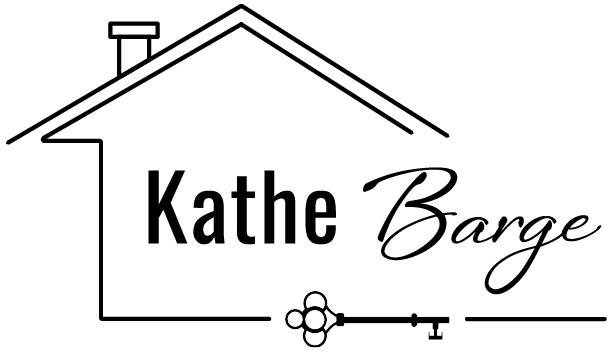
by Kathe Barge | Dec 1, 2022 | Blog, Buyers, Buying Conditions, Contracts, Helpful Tips, Interest Rates, Market Trends, Mortgage, Property Value, Real Estate
We would like to buy a new home soon but interest rates seem very high – we see advertisements for internet lenders offering what seem to be below market rates. Is this too good to be true?
If you were simply refinancing an existing mortgage debt, you MAY be ok choosing an internet lender. You would just need to be very careful that, before you apply to refinance your loan, you receive from the lender a full disclosure of all the costs and not just the rates. Often times I see lenders have exorbitantly high fees connected with low rates. In a sense, you would be buying down your rate by paying high fees upfront. You would want to be sure to compare them on the same day to a couple of local lenders and understand what you are paying to get the quoted rates. The reason you must compare rates on a singular date is because rates go up and down continuously and a rate may seem lower simply because you called a particular lender on a date rates dropped.
Since you are buying a new home rather than refinancing, I do NOT recommend that you use an internet lender. They do not tend to be familiar with area norms and that can cause you more headaches than you can imagine. There is a long list of particularities to PA Agreements of Sale and the last thing you want to do is have your closing delayed (while your movers are standing at the curb) while you wait for your lender (who does not have a local presence that you can visit personally to address any issues) to sort things out. As they are not familiar with our Agreements and processes, internet lenders may also impose requirements on you that are not requirements generally imposed by local lenders that may disadvantage you later. Finally, internet lenders often do not understand that PA Agreements of Sale declare “time is of the essence” inside the contract – what that means to you is that if you miss your closing date because the lender isn’t ready to close, the seller does have the legal right to declare you in default, keep your hand money and sell the home to someone else.
When buying, why take a risk? Rely on your trusted Realtor to help you find a local lender who offers the most competitively priced loan products and delivers exceptional customer service. Realtors cannot accept referral fees from lenders, so you can be sure we are motivated only by knowing you will have an outstanding transaction. Feel free to reach out to me for help finding you the best local lender to meet your financing needs!
[contact-form-7 id="115311" title="Get More Information Form"]

by Kathe Barge | Nov 4, 2022 | Buyers, Buying Conditions, Contracts, Helpful Tips, Interest Rates, Investment Properties, Listings, Market Trends, Mortgage, Property Value, Real Estate

Interest rates jumped up again. Is it time for us to just wait until spring and hope they start to come back down?
If you are a buyer, the real estate market offers you a great opportunity right now! Don’t be fooled by the higher interest rates – this is an awesome market for you to buy in! Why? Because all of the people who you would have been competing with are afraid of the interest rates and sitting by the sidelines. This allows you to have a competition – free opportunity to buy a home! Just six months ago, buyers would have been overjoyed to have an opportunity to buy a home without competition, to have had an opportunity to have had an offer accepted on the first home they offered on instead of their seventh, to have been able to purchase a home at asking price rather than asking price plus 10 percent! Do not miss this golden opportunity – there are some very nice homes available right now. You can refinance later with a convenient no cost refinance loan – get the house now! Once rates start to come back down, the buyers (who have all been sitting by the sidelines with you) will come racing back into the market, and bidding wars will be back. Make the smart move – buy now.
And as a side note, I do not feel we will see a “crash” in prices. Inventory remains at record lows and those homes that are selling continue to increase in their sales prices to new record highs, despite the increasing rates. This is not 2008 – I am not anticipating any “deals” to be had this spring – if anything the natural increase in the buyer pool we see every spring will boost prices because of the extreme lack of inventory. Feel free to reach out to me and we can strategize on how you can take the most advantage of the current real estate market while you still can!
A home’s value is set by the market. Value is always determined by what a buyer is willing to pay for your home. Many factors come into play in setting that value. Market value reflects quantitative factors such as: # bedrooms, # bathrooms, # garages, placement of garages (attached or integral), lot configuration (large and functional back yard? Cliff lot?), location of the home generally, age of roof, age of mechanicals. Market value also reflects more qualitative items: how updated is your home, and is it all new, or just refreshed? What is the floorplan (open concept?) What are your wall colors? There is always a range that value will land in, which we call the range of reasonable. There is no ONE price at which a home will sell. If there are many buyers seeking a home like yours, it will sell at the top of the range of reasonable. If there are not, it will take longer to sell and may sell a bit lower in the range. What the market does not consider in setting a value of a home is what you need from the home. In 2008, many homeowners had used their homes as ATMs and withdrawn large sums of money for educations, vacations and cars. When the market softened, there was not enough equity for them to be able to sell their homes and not be in a short sale situation. This fact, that a homeowner over-extended themselves on mortgages, is not the least bit relevant to market value. The market is also not going to consider what you plan to do next. If you plan to move to Los Angeles to be closer to family and are finding that the Pittsburgh market is not going to yield you enough to be able to buy in L.A., you will need to turn to other investments to make up any difference.
We are in a very robust market – your home is far more likely to garner more now – whatever that may be – than it could have in the past. Forecasters are also suggesting that values will soften by year end. My crystal ball is out for service, but what I can tell you is that every hot market eventually softens. Waiting out the market so that you can get a price that the market is unprepared to deliver at this time may have you waiting many, many years, and during that time you may need to invest even more in your home in order to deliver to the market what it needs in order to deliver an acceptable sale to you.
[contact-form-7 id="115311" title="Get More Information Form"]

by Kathe Barge | Aug 26, 2022 | Buyers, Buying Conditions, Contracts, For Sale By Owner, Helpful Tips, Home Improvements, Inspections, Listings, Property Updates, Property Value, Real Estate, Sellers, Sellers-Contracts

We find the inspection process confusing – do we have to fix everything in the inspection report before we close on our home or just the repairs the buyer requested?
The home inspection report is the document from which your buyer works to make their repair requests of you. Some buyers will ask for everything and others will ask for only those items that they think are important. They may let some things go, for example, if they are planning on renovating an area and anticipate fixing those items as a part of the renovation.
Once you and your buyer agree on a list of repairs, these are memorialized on an addendum. It is that addendum, called a Change in Terms Addendum (“CTA”), from which you work when completing your repairs. You need not refer to the inspection again unless the CTA references it. You do, however, need to make sure that you do everything on the CTA exactly as specified, so be sure to read it carefully and provide a copy to your contractor(s). For example, if the CTA says that you will have GFCI outlets installed by a licensed electrician then you need to make sure you hire a licensed electrician, and not your favorite handyman, to make the repair! If the CTA says you must paint to match existing then you need to take a sample of the existing paint to the paint store and color match it – don’t rely on old paint in cans – paint fades with age and it won’t match. Be very careful to be sure you are complying with the terms of the CTA – if you do not, or if your contractor does not, your closing may be delayed or postponed until the work is done as specified. Along those lines, be sure to review your contactor’s work when complete and make sure that he actually did what you agreed to do on the CTA. If not, request that he return before it becomes a walk-through issue.
And of course, be sure to get paid receipts from all contractors, or if they have not been paid, notify the closing company so that they can be paid at closing. All repairs must be paid for before ownership changes hands so be sure to stay on top of your bills, and provide receipts to the buyers agent.
[contact-form-7 id="115311" title="Get More Information Form"]
by Kathe Barge | Jun 13, 2022 | Buyers, Buying Conditions, Contracts, Helpful Tips, Inspections, Listings, Property Value, Real Estate

What kinds of items would be viewed as “hot buttons” for home buyers on inspections?
If you are a home seller, there is an ever increasing list of items that you will be expected to address if any are discovered on your home inspection. Given that, if you are thinking about selling your home, it would be a good idea to determine if any of these conditions exist at your home and remedy them prior to listing your home. Items that sellers are generally expected to address these days include:
Radon: if your home exceeds 4.0pCi/l, you will be expected to remediate the radon, even if it was a low reading when you bought the home. Radon varies over time. The estimated cost for a system is approx.. $1300.
Mold: If there is mold anywhere at all, you will be expected to have it remediated. Basements and attics are the most obvious places mold hides out, but be sure to check showers and under sinks.
Electrical: If you have knob and tube wiring, you will likely be paying for it to be removed and replaced, unless you price your home with a rewire in mind and disclose its presence. If your home has any Pushmatic brand electrical panels, buyers will also expect those to be replaced.
Broken Seals: if you have thermopane windows, doors or skylights in your home, buyers will expect you repair the broken thermo seals. This is evident because the windows have a cloudy look to them. There are a few companies in Pittsburgh that can do this reasonably affordably.
Septic/Sewer: Sewer lines are the newest “must do” inspection. If a buyer finds roots in your sewer line, at a minimum you will be expected to clear the roots from the line, but if they are bad you will be expected to line or replace the line. This can be extremely costly so I highly advise that you camera your own lines in advance of selling and get them in good shape.
You can be certain that if any of these conditions exist in your home, you will be expected to remedy the condition unless you disclose its presence and price accordingly.
[contact-form-7 id="115311" title="Get More Information Form"]
by Kathe Barge | Jun 9, 2022 | Blog, Buyers, Buying Conditions, Contracts, Helpful Tips, Inspections, Listings, Property Updates, Property Value, Real Estate

We find the inspection process confusing – do we have to fix everything in the inspection report before we sell our home or just the repairs the buyer requested?
The home inspection report is the document from which your buyer works to make their repair requests of you. Some buyers will ask for everything and others will ask for only those items that they think are important. They may let some things go, for example, if they are planning on renovating an area and anticipate fixing those items as a part of the renovation.
Once you and your buyer agree on a list of repairs, these are memorialized on an addendum. It is that addendum, called a Change in Terms Addendum (“CTA”), from which you work when completing your repairs. You need not refer to the inspection again unless the CTA references it. You do, however, need to make sure that you do everything on the CTA exactly as specified, so be sure to read it carefully and provide a copy to your contractor(s). For example, if the CTA says that you will have GFCI outlets installed by a licensed electrician then you need to make sure you hire a licensed electrician, and not your favorite handyman, to make the repair! If the CTA says you must paint to match existing then you need to take a sample of the existing paint to the paint store and color match it – don’t rely on old paint in cans – paint fades with age and it won’t match. Be very careful to be sure you are complying with the terms of the CTA – if you do not, or if your contractor does not, your closing may be delayed or postponed until the work is done as specified. Along those lines, be sure to review your contactor’s work when complete and make sure that he actually did what you agreed to do on the CTA. If not, request that he return before it becomes a walk-through issue.
And of course, be sure to get paid receipts from all contractors, or if they have not been paid, notify the closing company so that they can be paid at closing. All repairs must be paid for before ownership changes hands so be sure to stay on top of your bills, and provide receipts to the buyers agent.
A home’s value is set by the market. Value is always determined by what a buyer is willing to pay for your home. Many factors come into play in setting that value. Market value reflects quantitative factors such as: # bedrooms, # bathrooms, # garages, placement of garages (attached or integral), lot configuration (large and functional back yard? Cliff lot?), location of the home generally, age of roof, age of mechanicals. Market value also reflects more qualitative items: how updated is your home, and is it all new, or just refreshed? What is the floorplan (open concept?) What are your wall colors? There is always a range that value will land in, which we call the range of reasonable. There is no ONE price at which a home will sell. If there are many buyers seeking a home like yours, it will sell at the top of the range of reasonable. If there are not, it will take longer to sell and may sell a bit lower in the range. What the market does not consider in setting a value of a home is what you need from the home. In 2008, many homeowners had used their homes as ATMs and withdrawn large sums of money for educations, vacations and cars. When the market softened, there was not enough equity for them to be able to sell their homes and not be in a short sale situation. This fact, that a homeowner over-extended themselves on mortgages, is not the least bit relevant to market value. The market is also not going to consider what you plan to do next. If you plan to move to Los Angeles to be closer to family and are finding that the Pittsburgh market is not going to yield you enough to be able to buy in L.A., you will need to turn to other investments to make up any difference.
We are in a very robust market – your home is far more likely to garner more now – whatever that may be – than it could have in the past. Forecasters are also suggesting that values will soften by year end. My crystal ball is out for service, but what I can tell you is that every hot market eventually softens. Waiting out the market so that you can get a price that the market is unprepared to deliver at this time may have you waiting many, many years, and during that time you may need to invest even more in your home in order to deliver to the market what it needs in order to deliver an acceptable sale to you.
[contact-form-7 id="115311" title="Get More Information Form"]
by Kathe Barge | May 2, 2022 | Blog, Buyers, Buying Conditions, Contracts, Helpful Tips, Interest Rates, Listings, Market Trends, Mortgage, Property Value, Real Estate, Selling Conditions

With all of the bidding wars happening in this hot market, should we put an appraisal contingency in our offers?
Appraisal contingencies are added to agreements when buyers are concerned that their offer may be over market value. If you are getting a mortgage, they really aren’t necessary if you are putting 20% or less down on your home. Your bank will need your new home to appraise so that your debt percentage is not greater than 80%. If it doesn’t appraise, you will either have to throw in more cash or reduce the sales price of the home, or the bank will refuse to fund the loan.
If you are paying cash for your home, or have a small planned mortgage, your only protection from over-paying is to insert an appraisal contingency into your offer. If the home fails to appraise, you will have the option of terminating the agreement if you choose, or possibly re-negotiating the price. While this may sound like a fool-proof option, when we are in a hot market, with limited inventory and limited options for buyers, the goal is to reduce the number of contingencies to make your offer more appealing, not to add more! When evaluating whether they want to take their home off the active market to work with your offer, a seller will weigh all of the components, and an appraisal contingency weakens your offer as it is one more hurdle the seller must overcome before they can proceed to closing.
There is a definite risk that in a hot market you could overpay for a home. Homes are in some circumstances selling for tens of thousands of dollars in excess of the list price. Unfortunately, this may be what it takes to get a home. Inserting an appraisal contingency will only weaken your offer and could cause you to lose a bidding war. The best course of action if you want to win is to ask your agent to prepare an analysis of comparable sales and use that to determine your best offer, leaving out the appraisal contingency and hopefully succeeding in your bid to buy a new home.
[contact-form-7 id="115311" title="Get More Information Form"]
by Kathe Barge | Apr 11, 2022 | Buyers, Buying Conditions, Contracts, Helpful Tips, Interest Rates, Listings, Market Trends, Pittsburgh, Property Value, Real Estate, Sellers, Selling Conditions

How do you guard against overpaying in this competitive market?
You have a good reason to worry about prices in the market that we are in. Currently it seems that prices have risen at least 10% in some price brackets since the new year. That’s an incredible amount for the Pittsburgh market which typically appreciates at the rate of 1 to 2% per year. That increase is not being seen a crossed all price brackets – the million dollar plus market has as a general rule seen less. However, the majority of our homes are still seeing multiple offers and the prices are still coming in over the asking price.
Given the current state of the market, there is a high likelihood that those participating in some of the more intense bidding wars going on right now are going to end up overpaying for their homes. If they remain in their homes for 5 to 7 years, however, that should not be an issue. We should see enough market appreciation in a 5 to 7 year period to make up for any premium that might be paid in the current market.
If you are getting a mortgage, the appraisal required by the mortgage company provide some level of protection. However, most appraisers are trying to make their appraisals come in where the market is presently, so that doesn’t exactly protect you from the “bubble” we may be experiencing. Additionally, if you are involved in a multiple offer situation, to be the winning bidder you will probably have to offer some level of “appraisal gap coverage” meaning that you agree to accept the appraisal at a lower number than the purchase price, should that occur. So, you will not benefit from the typical protections afforded by an appraisal.
In the end, the answer to your question is that if you are buying in this market, you are just going to have to come to peace with the fact that you may need to do what appears to be overpaying in order to get a home for you and your family. However, in the end, even if the market does settle down a bit, as long as you are not planning to move in the near future, the market will eventually catch up with any premium you might have to pay.
[contact-form-7 id="115311" title="Get More Information Form"]
by Kathe Barge | Mar 30, 2022 | Buyers, Buying Conditions, Contracts, Helpful Tips, Inspections, Listings, Market Trends, Property Updates, Property Value, Real Estate, Sellers

The market is so hot right now and we aren’t having any luck getting a home – should we waive home inspections?
You are correct –the market under $1million is very fast paced right now, and in many instances, the winning bidder has waived home inspections. That does seem to be what it may take to “win” right now but I cannot recommend that you make that choice. Now several months into the “waive inspections” craze we are starting to hear stories about the expected fallout from this hasty decision.
From the seller’s perspective, I highly recommend that you have your home pre-inspected and repair or disclose the relevant items. While an inspection might cost you upwards of $500, it is money well spent toward a smooth closing. If you have pre-inspected your home and provide the report to prospective buyers, you are doing your part to make sure your buyer is well-informed. In the absence of a pre-inspection, I do not recommend that you accept an offer from a buyer who has not inspected your home. I have started hearing from home inspectors that disgruntled buyers are seeking post closing inspections to find problematic items and sue the sellers for failure to disclose. You don’t want that to be you. If you have not pre-inspected, we can discuss strategies to allow a buyer’s inspection and still protect you.
From a buyer’s perspective, as we all imagined would happen, the post-closing stories are starting to mount about buyers who purchased without an inspection and are now having all sorts of forseeable issues – roofs leaking, furnaces failing… If you are going to make this risky choice, you need to do so knowing that you will be assuming the risk of potentially tens of thousands of dollars of issues The contract specifically states that your inspection is your opportunity to find issues – if you waive that, you will be fighting an uphill battle to recover against anyone. Before you make an offer without an inspection contingency, you really do need to ask yourself if you are prepared to absorb those costs!
[contact-form-7 id="115311" title="Get More Information Form"]
by Kathe Barge | Feb 10, 2022 | Blog, Buyers, Buying Conditions, Contracts, Investment Properties, Listings, Market Trends, Mortgage, Property Value, Real Estate

What impact do you think rising interest rates will have on the real estate market?
I can’t tell you how many years the Fed has been warning us that they are going to raise the interest rates, and then nothing happened. But now, it looks like it is finally happening. Less than one year ago, conforming loans with good credit could be procured at rates below 3% fixed. Now they have inched up to 3.75% for conforming loans. While these are still historically great rates, the days of mortgage interest rates in the 3% range appear to be gone and we are slowly inching upward.
What impact will this have on the market? Typically, when rates increase the market slows. Buying power decreases – a buyer will qualify for a smaller mortgage amount when rates are higher. Even if a buyer qualifies for a loan amount, they may not want to pay the added amount each month attributable to the higher rate. Many buyers are cognizant of how much they don’t have available to spend on quality of life purchases, such as dinners out, when they have larger mortgage payments. This boils down to the fact that they may be unwilling or unable to buy at a price they could have last year, and this could depress housing prices.
However, this is counterbalanced by the fact that we are in a market with record low levels of inventory, so it is highly unlikely that interest rates will have any effect on housing prices in the short run. If anything, rising rates should cause buyers to move quickly and lock in homes and mortgages before rates continue to climb. And this would be the most sensible short-term response to rising rates. Buyers – rates are actually going up! The time to act is now!
[contact-form-7 id="115311" title="Get More Information Form"]
by Kathe Barge | Jan 27, 2022 | Blog, Buyers, Buying Conditions, Contracts, Investment Properties, Market Trends, Mortgage, Property Value, Real Estate

We are interested in diversifying our portfolio and purchasing rental properties – any thoughts?
The first thing to keep in mind when considering a rental property is how you intend to pay for it. Rental properties are investment properties and subject to different lending rules than the home that you live in. Therefore, a lender will expect that you put more down as a down payment on a rental property and you will pay a higher rate of interest. Typically, lenders are looking for no less than 20% down on your purchase. And of course until you establish yourself as a successful landlord, your income is going to need to be sufficient to support the mortgage on your primary residence as well as any debt on your rental investments.
The second thing you need to think about is what kind of tenant you are interested in renting to. If you are hoping to rent to a family who might be in town for a couple of years with a temporary job assignment, then purchasing an apartment building with one and two bedroom apartments is unlikely to attract the type of tenant you hope to find. In that scenario, you would be looking for a single-family home in all likelihood (or possibly a townhome) in a good school district such as Quaker Valley. If you are hoping to find young professionals, you might look for something closer to downtown that has a trendier vibe to it.
You also need to take a look at the return on investment that you are seeking from the property. You will need to consider how much you are putting down on the property, how much you were paying in interest on any mortgage that you take out, your property taxes, maintenance of the building, any homeowners association fees, and any utilities that might be the responsibility of the landlord (these are typically utilities that are not separately divided in the particular structure, such as water). Putting together a spreadsheet with all of the expenses and your expected income will help you to determine whether or not the anticipated net income is worth the risk of investment to you. Be sure to build in some vacancy months – most properties are not leased 100% of the time.
Finally, you need to give some thought to how you will manage the property. Are you going to hire a property management company to handle that for you, or will you be more hands-on? Who is going to handle maintenance requests when something goes wrong? The beauty of being a tenant is that if something breaks, it’s not your responsibility to get it fixed. But as the landlord, are you going to be taking care of the repairs and if not, do you have a reliable handyman on-call that is willing to handle those items for you. If you are planning for others to manage the property on your behalf, you will need to build those costs into your financial projections as well. If investment properties are something you would like to consider, feel free to reach out to me and we can discuss these opportunities further.
[contact-form-7 id="115311" title="Get More Information Form"]
by Kathe Barge | Dec 6, 2021 | Buyers, Buying Conditions, Contracts, Foreclosure, Listings, Market Trends, Mortgage, Property Value, Real Estate, Sewickley

We would like to move to Sewickley. Are there any affordable homes anymore?
Of course there are! But Sewickley, particularly in affordable price ranges, has become a very competitive market. It seems the secret is out – many people know about our very unique combination of a highly rated school district and a charming, walkable shopping district. Every agent I know has a list of buyers waiting for affordable homes to become available!
What does this mean for you as a home buyer? First, its critical to make sure you are fully pre-approved for a mortgage. If you are fully pre-approved (having submitted all of the supporting documents to your lender), you may be confident in your ability to get a mortgage and feel comfortable waiving your mortgage contingency, which will make you a much more competitive buyer if there are multiple offers.
Second, keep your offer as “clean” as possible. Try not to add in special requests or inclusions that sellers don’t usually leave with a home (such as furniture). Keep your inspection period as short as possible, or consider waiving inspections altogether if it is a newer home.
Third, keep your offer prices up. If you love a home, that is no time to lowball a seller. Even if a home has been on the market for a while, we often receive multiple offers at the same time. You don’t save anything when you make a low offer and you don’t get the home.
Finally, be open to compromise. If a home meets 7 out of 10 of your wish list items, consider it a home run. In a tight market like we are in, if you hold out waiting for your perfect 10, you will likely find yourself sitting on the sidelines. To get a Sewickley home, you may have to give up a garage, or a two car garage. You may need to take on a few projects. You may need to accept that there is no master bathroom or no main level family room. You may need to accept that the basement ceilings are lower and so any “game room” is a little more basic. You may have to accept a less open floorplan or a longer distance to the center of town. But remember, once you close you will make it your home, flaws and all, and will absolutely love being a part of this vibrant community!
[contact-form-7 id="115311" title="Get More Information Form"]
by Kathe Barge | Nov 1, 2021 | Blog, Buying Conditions, Contracts, Listings, Market Trends, Mortgage, Property Updates, Property Value, Real Estate, Sellers, Selling Conditions

Senior couple having finance problems,they are using laptop for online payments.
We are planning for retirement and thinking of paying off our mortgage – is this a good idea?
When it comes to personal finances, there is never a one size fits all answer. Financial advisors will often tell you that investing in the market will, over the long run, yield you a greater return than the interest rate you are paying on your mortgage (this has certainly been true in recent years what interest rates have been historically low). However, markets are unpredictable and unless you are leaving your funds in a savings account at a bank, there is no guarantee you will not have a negative return in the market (see, for example, 2008). Additionally, if you pay off your mortgage, you are not getting the tax benefits of the mortgage deduction (available for mortgages up to $750,000 in size).
However, the counter argument is equally, if not more, compelling for many people. Without a mortgage, you are freed from having to worry about whether you have enough cash each month to pay your mortgage. Without a mortgage, your monthly expenses will likely be significantly lower. This not only allows you peace of mind, but would also allow you more monthly cash to spend on things you want to spend on, whether they be trips, gifts, or just more “experiences.” If you ever sell your home, you will have a much larger nest egg to move to your next residence, whether it is to be closer to children or grandchildren in another location or whether it is into a retirement community (many of which do you have substantial deposit requirements). Finally, there is no “risk” to the return you will get by paying off your mortgage. You know what your interest rate is on your mortgage and how much of a savings you will get each month when you pay it down.
However, it is never advisable to completely deplete your savings just to pay off a mortgage. If paying off your mortgage would substantially reduce or eliminate your emergency fund, then it is not a good idea. If, however, you still have a few years until you retire and are able to pay down the mortgage at a significantly faster pace by increasing your monthly payment or by making a lump sum payment each year (perhaps designating a portion of a bonus that you receive toward your mortgage payment), tell me this is absolutely an option you should give some serious consideration to.
[contact-form-7 id="115311" title="Get More Information Form"]
by Kathe Barge | Oct 20, 2021 | Buying Conditions, Contracts, For Sale By Owner, Listings, Market Trends, Marketing, Property Value, Sellers, Selling Conditions

We are planning to sell our home but have an opportunity to sell it before it goes into the MLS – what are your thoughts?
Many people often think that it’s a great idea to sell before their home hits the MLS – you certainly save yourself the hassle of having to get your home completely ready for what could be a large number of showings. However, in this market, the multi list is really a sellers best friend for many reasons and I do not advise any seller to sell their home “quietly.”
Many homeowners have been bombarded with love letters this fall letting them know that, should they decide to sell, there is an eager buyer waiting to buy. Any realtor who is actively involved in our market will also likely have at least one buyer for just about every price category out there. All of these people would absolutely love the opportunity to be able to purchase a home without competition from other agents and buyers. But this is highly unlikely to be in a seller’s best interests.
The multi list is a very powerful tool when selling your home. It, and all of the attendant publicity, gives you the opportunity to cast a very wide net for buyers. With the extensive publicity, any serious buyer is going to be highly likely to produce an outstanding offer. They will not waste time trying to decide whether or not your home is the right home for them. You are also far more likely to get a higher offer from multi list exposure as buyers feel the pressure from the market and will produce higher offers to inure they get the home. It is true that some people simply do not need every last dollar out of their home and may be comfortable leaving what could be tens of thousands of dollars on the table in order to get a quick sale, and you may be that benevolent home owner that wants to give somebody a break, but that isn’t most home sellers I speak to. Additionally, without multi list exposure, should you put your home under agreement with a buyer through a “secret sale” you are much more likely to get a long list of inspection requests. Therefore, I highly advise that you select an agent experienced at handling the intricacies of multiple offer situations and get your home in the MLS!
[contact-form-7 id="115311" title="Get More Information Form"]
by Kathe Barge | Oct 11, 2021 | Blog, Buyers, Buying Conditions, Contracts, Market Trends, Mortgage, Real Estate

Do you have any tips on how to get through the mortgage process as smoothly as possible?
I certainly do! Below are a few pointers on what you should not do if you want your mortgage to move smoothly through the process! This is critically important these days when competition is more intense for homes!
- Don’t quit your job
- Don’t change your job
- Don’t get a promotion
- Don’t buy any large ticket items (like five hundred dollars or more!)
- Don’t make David Copperfield deposits (all funds need to be traceable)
- Don’t forget to tell anyone making a funds gift to you that you will probably need a gift letter and some proof (usually a bank statement) that they had the money to give
- Don’t forget to tell the lender about child support, alimony, wage garnishments or any other payroll reduction
- Don’t co-sign for even a candy bar!
- Don’t schedule a vacation before we close (especially a cruise)
- Don’t order Direct TV, Cable, Telephone or any utility that will pull a credit report unless you want to write a letter of explanation about the credit report to the mortgage company
- Don’t change your name during the mortgage process
- Don’t go window shopping and let people pull your credit
Assuming that seems pretty straight forward to you, below are a few more choices some buyers make that make the process more difficult than it needs to be:
- Not being up-front with your loan officer (hiding information)
- Finding a lender on the internet that offers an unbelievable low interest rate
- Using a 100% Online Lender
- Not using the name on drivers licenses for mortgage docs (use Jr. and Sr. if required)
- Not telling your lender if you lose your job before you close
- Not shopping for the lowest costs and best rates
- Delaying paperwork because you are irritated by the frequency and number of requests from the mortgage company
Take these pointers to heart and you will greatly simplify your mortgage process!
[contact-form-7 id="115311" title="Get More Information Form"]
by Kathe Barge | Sep 7, 2021 | Blog, Buyers, Buying Conditions, Contracts, Inspections, Listings, Market Trends, Marketing, Mortgage, Property Value, Real Estate, Sellers, Selling Conditions

We hear selling a home can be a trying process. Any annoyances a seller should be expecting?
Below is a short list of many of the “joys” sellers might experience during the listing process. Being aware that these are possibilities will hopefully help you take them in good humor if they happen to you!
- The agent showing your home will miss appointments and not call or show up.
- Appointments will be made and cancelled at the last minute.
- Some showings will last about five minutes and some will last 3 hours.
- There will be a day when I call you and say someone wants to see your house, and you are going to ask me when. And I will say: “Look out your windows, they are sitting outside now”!
- Agents are going to knock on your door or even drive by, see you in the yard and ask if can they see you house.
- Agents showing your home will forget to turn lights off.
- Agents showing your home will let your pets out (best to remove them from your home for showings) or your neighbor’s pet in.
- Agents will provide unhelpful feedback – buyers buy homes when they attach emotionally to a home and when they don’t, their feedback is often nonsensical.
- Agents will not provide any feedback – incredibly annoying, I know.
- Expect lowball offers (at least it is a starting point). If your home has been on the market for more than a month, there is a reasonable chance that you priced it too high – maybe the lowball isn’t as low as you think.
- Things will come up on the inspection that you had no idea were wrong with your home and you will be sure the inspector made a mistake. A pre-inspection is a great way to protect yourself against this!
- The buyer will make ridiculous inspection requests.
- The buyer will ask to bring in contractors for estimates for work they want to do after the closing at the seemingly most inconvenient times.
- The property might not appraise at what you are selling it for. In a hot market like this one, this is a real risk. Be prepared to adjust your price if your sales price is over the listing price and it doesn’t appraise.
- The closing date on the contract may change. Lenders and closing companies remain swamped right now – be open to the possibility of a delay.
[contact-form-7 id="115311" title="Get More Information Form"]
by Kathe Barge | Aug 18, 2021 | Blog, Buyers, Buying Conditions, Contracts, Listings, Market Trends, Mortgage, Property Updates, Real Estate, Sellers, Selling Conditions

We have been sitting on the sidelines for a while now waiting for a home that meets our wish list to come on the market – what’s coming this fall?
You might be surprised to find out, you are one of dozens of prospective buyers sitting on the sidelines waiting for their ideal home to come on the market. Nationally we are at a 20-year low in available housing inventory. What is going on you might ask?
Many blame it on the Baby Boomers! Seventy-eight percent of Boomers own their own homes, and 85% of them have no intentions to move within the next year. This is tying up a significant portion of potentially available housing inventory. Why aren’t Boomers moving? Stated reasons range from being happy where they live and not wanting to uproot their lives, to having inadequate choices in empty nester inventory to escalating prices that make scale down homes more and more expensive. Boomers are reportedly less interested in destinations like Florida and Arizona these days and are choosing to stay in the homes and communities where their family and friends are.
In Sewickley, we have very few opportunities for scale down housing, and so Boomers are remaining in their homes. As a result, our inventory continues to dwindle and there are very few new introductions. There will likely be a few relocations, but with the low inventory and large backlog of buyers, I expect pricing will be high and bidding wars will continue.
To be successful in this housing market, if you define success as actually getting a home and moving, you are going to have to accept a few key premises. First, you need to reevaluate your wish list and see what compromises you are willing to make. We still have many nice homes on the market – they may not be a perfect match for you, but could you make one work? You are more likely to receive a discount on a home that has been on the market. Second, if you decide to wait and a home comes on the market that is a good fit for you, be prepared to act fast and bid high. Complete the preapproval process now so that your offer is as strong as possible.
Our market is a steady one and I do expect we will see some new introductions as we move into fall, but your best recipe for success is one that includes reevaluation of the current inventory, compromise, fast action and generous, well crafted offers.
[contact-form-7 id="115311" title="Get More Information Form"]
by Kathe Barge | Jul 21, 2021 | Blog, Buyers, Buying Conditions, Contracts, Home Staging, Inspections, Listings, Marketing, Property Updates, Property Value, Real Estate, Sellers, Sellers-Contracts, Selling Conditions

Our home went under agreement quickly! When we moved in we installed expensive hardware that we really love (door knobs, switch plate covers, towel rods, etc.). We would like to take it with us. Can we substitute other items before we close?
Absolutely not! First of all, with a quick sale you likely got a high price or your home and when a buyer is paying top dollar, it is not appropriate to start pulling things out of your home! Additionally, any item that is affixed to your home with a screw, nail, etc. must convey with your home unless you have specifically excluded it from your agreement of sale. Unless you raise this question during negotiations and your buyer agreed prior to signing the agreement, the items must remain with your home.
About 20 years ago I represented a buyer of a home that was remodeled with high-end Restoration Hardware items – cabinet knobs, towel bars… After we agreed on a price but before closing, we returned to the home to discover that the sellers had removed the expensive Restoration Hardware items and installed baseline builder items from Lowes. This was not what my client had seen when they toured the home and not what they had agreed to purchase. The seller ended up providing a $7000 reduction in the purchase price to make up for the items that had been switched. I’m not sure if the buyer ever replaced the items – what is relevant was that the removal of the high end items made the home less valuable.
If you find yourself heading toward a closing and you are just realizing that there is something affixed to your home that has sentimental value that you forgot to exclude, you can certainly ask your buyer if they would agree to a substitution – most buyers will allow removal of a sentimental item if you replace it with a like value item. Absent buyer consent or upfront exclusion, all affixed items must stay. Items that are occasionally inappropriately removed include: appliances, doorknobs, switch covers, towel bars, curtain rods, mailboxes, attached shelving and TV wall mount brackets. Mirrors that are attached must stay. Those hanging on hooks can be removed if you have to have them (although most buyers do expect them to remain).
[contact-form-7 id="115311" title="Get More Information Form"]
by Kathe Barge | Jun 18, 2021 | Blog, Buyers, Buying Conditions, Contracts, Inspections, Listings, Market Trends, Property Updates, Property Value, Real Estate, Sellers

It seems buyers can be very picky on home inspections. What should a seller expect?
What a Seller needs to be prepared for on a home inspection needs to be evaluated in the context of the entire deal! Both buyers and sellers need to keep things in perspective. If a Buyer got a great deal on a home, then the inspection should be more about major things that the Buyer could never have known about. If a Seller got top dollar for a home, the Seller should expect to be very generous on the inspection resolution with the buyers. Sellers do need to expect that a buyer paying asking price or above will expect the inspection items to be addressed by the Seller unless the Seller had disclosed them on the Disclosure.
The Disclosure is a Seller’s friend. What a Seller discloses is supposed to be outside the scope of inspection requests. These are items that the Buyer should be taking into account when making their initial offer. Therefore, when filling out the Disclosure, Sellers will want to review it carefully to be sure it is thorough. Inspectors do not miss anything these days, so it will be far less of a financial blow to a seller if all possible issues are noted up front.
Of course, a pre-inspection may be a Seller’s best approach for a smooth transaction for all parties. While a seller will spend approximately $400 up front, it gives you a chance to repair or disclose the issues before they possibly destroy a deal. Remember, if buyers and sellers can’t come to a resolution about inspection concerns, the deal is terminated and both parties move on. Sellers, you obviously want to sell or you wouldn’t be undergoing the joy of preparing your home for showings. Keep the big picture in mind and understand that unless you are giving your home away, your buyer will expect you to fix what you didn’t disclose. Don’t like the sound of that? Pre-inspect so you know what you will have to address upfront.
[contact-form-7 id="115311" title="Get More Information Form"]
by Kathe Barge | Jun 16, 2021 | Blog, Buyers, Buying Conditions, Contracts, Listings, Market Trends, Mortgage, Property Value, Real Estate, Sellers, Sellers-Contracts, Selling Conditions

With all of the bidding wars happening in this hot market, should we put an appraisal contingency in our offer?
Appraisal contingencies are added to agreements when buyers are concerned that their offer may be over market value. If you are getting a mortgage, they really aren’t necessary if you are putting 20% or less down on your home. Your bank will need your new home to appraise so that your debt percentage is not greater than 80%. If it doesn’t appraise, you will either have to throw in more cash or reduce the sales price of the home, or the bank will refuse to fund the loan.
If you are paying cash for your home, or have a small planned mortgage, your only protection from over-paying is to insert an appraisal contingency into your offer. If the home fails to appraise, you will have the option of terminating the agreement if you choose, or possibly re-negotiating the price. While this may sound like a fool-proof option, when we are in a hot market, with limited inventory and limited options for buyers, the goal is to reduce the number of contingencies to make your offer more appealing, not to add more! When evaluating whether they want to take their home off the active market to work with your offer, a seller will weigh all of the components, and an appraisal contingency weakens your offer as it is one more hurdle the seller must overcome before they can proceed to closing.
There is a definite risk that in a hot market you could overpay for a home. Homes are in many circumstances selling for tens of thousands of dollars in excess of the list price. Unfortunately, this may be what it takes to get a home. Inserting an appraisal contingency will only weaken your offer and could cause you to lose a bidding war. The best course of action if you want to win is to ask your agent to prepare an analysis of comparable sales and use that to determine your best offer, leaving out the appraisal contingency and hopefully succeeding in your bid to buy a new home.
[contact-form-7 id="115311" title="Get More Information Form"]
by Kathe Barge | Apr 28, 2021 | Buyers, Buying Conditions, Contracts, Market Trends, Property Value, Real Estate, Selling Conditions

Are you still seeing multiple offers on homes these days?
Yes, we are, depending on location, condition and price range. Multiple offers are primarily coming in the under $500,000 market. If your home is in a higher price range, that does not mean that you won’t get an offer, and it doesn’t mean that it won’t be a good offer – but you may only get one, and you may need to wait for it – the market does not always offer instantaneous results. The market is still strong, just not as crazy as it was a few weeks ago – more homes are coming on the market and the buyer demand is starting to be satisfied.
Multiple offers, over-asking-price offers and full-price offers are also far more likely in our hottest neighborhoods and historically most popular locations. Additionally, sellers who have conditioned their home for market, both in staging and making changes to meet current buying trends, are most likely to be those with multiple and/or full price offers. It is very important, however, to keep in mind that your initial asking price will dictate whether or not you receive a high offer. If you choose to challenge the market with your asking price, and are at the top of your neighborhood, it’s unlikely your home will be snapped up or will receive an asking price offer – you may need to be patient and wait for a buyer who sees the value as you do. On the other hand, if you price with last year’s prices, or shoot below market, you are far more likely to spur a bidding war. Yes, we are selling at premium pricing on premium products, but this typically happens because the asking price feels a little on the low end to buyers to begin with. So my best advice to sellers is to take the time to condition your home to meet market expectations and then price carefully – no one wants to give their home away, but do be careful not to overshoot the market’s historic guidance on pricing.
Buyers – you still have a lot of competition out there. If you are looking for a historically hot property (based on size, location or price range), you still need to plan to be very aggressive with your offers if you want to win!
[contact-form-7 id="115311" title="Get More Information Form"]
by Kathe Barge | Mar 15, 2021 | Buyers, Buying Conditions, Contracts, Listings, Real Estate, Sellers

We have noticed that several homes have sold lately before they have hit the MLS. Are these “pocket listings” a good way to sell your home?
If a home sells before it hits the MLS, as a “pocket listing” as they are often called, it is highly likely that the seller could have sold the home for significantly more money, particularly in this market. The MLS exposes a home to a large number of prospective buyers in a very short amount of time. This widespread exposure is what has the potential to drive the price up for the seller.
A “pocket listing” is more like a secret sale. The agent you are dealing with may have a buyer that is willing to buy your home, but if it’s that easy, chances are you could have received more money if the general public had a chance at your home, and a bidding war could have possibly ensued. If an agent is being straightforward with the seller and discusses the strategies involved with using the market pressure of the MLS to drive in a higher price, it’s a rare seller who will willingly leave money on the table.
So why do we occasionally see these seemingly “secret sales” taking place? Some sellers perceive these pocket listings as a good thing – some don’t want to be hassled with multiple showings, some don’t want the general public to know their home is available for sale. If a seller’s goal is to maximize financial return, however, a pocket listing, or accepting an agreement of sale before the home is marketed in the MLS, is rarely the best strategy.
So no, my 22 years experience indicates that a pocket listing is usually not in a seller’s best interests. The highest returns I have seen sellers achieve occur in scenarios when they have used strategies to maximize the excitement within the buying community through proper pricing, excellent conditioning and staging and full MLS exposure.
[contact-form-7 id="115311" title="Get More Information Form"]
by Kathe Barge | Jan 25, 2021 | Buyers, Buying Conditions, Contracts, Listings, Market Trends, Pittsburgh, Property Updates, Property Value, Real Estate, Schools, Sellers, Selling Conditions

Why does it seem like there are no new homes coming on the market!
Your perceptions are correct! We have less than one half of the homes we had on the market at this time last year. At the time of this writing, we have only 61 homes actively available in the Quaker Valley School District, with only 34 of those being priced at 1million or less! In 2020, we sold 252 homes in the Quaker Valley School District with 225 under 1million. I suspect the reason you are not seeing more inventory is because people who are willing to sell their homes have no where to go. Unless you are leaving the region or moving into a retirement community such as Masonic Village or Sherwood Oaks, you might be interested in taking advantage of this market that is yielding record prices but can’t figure out how to make it happen! If you are one of those potential sellers who has a plan to depart, give me a call so we can devise a strategic plan to drive in the best price and terms for you! Now is NOT too early — right now buyers are shopping for late spring/ early summer closings! Its been an exciting spring market so far — as you will see below, my first three spring opportunities sold the first day they were available and for top dollar! NOW is the time to join this exciting market!
[contact-form-7 id="115311" title="Get More Information Form"]
by Kathe Barge | Oct 5, 2020 | Contracts, Inspections, Listings, Real Estate, Sellers
 We hear that selling a home can be a trying process. They say forewarned is forearmed. Any annoyances a seller should be expecting?
We hear that selling a home can be a trying process. They say forewarned is forearmed. Any annoyances a seller should be expecting?
Below is a short list of many of the “joys” sellers might experience during the listing process. Being aware that these are possibilities will hopefully help you take them in good humor if they happen to you!
- The agent showing your home will miss appointments and not call or show up.
- Appointments will be made and cancelled at the last minute.
- Some showings will last about five minutes and some will last 3 hours.
- Agents showing your home will forget to turn lights off.
- Agents showing your home will let your pets out (best to remove them from your home for showings) or your neighbor’s pet in.
- Agents will provide unhelpful feedback – buyers buy homes when they attach emotionally to a home and when they don’t, their feedback is often nonsensical.
- Agents will not provide any feedback – incredibly annoying, I know.
- Expect lowball offers (at least it is a starting point).
- Things will come up on the inspection that you had no idea were wrong with your home and you will be sure the inspector made a mistake or the buyer will make ridiculous inspection requests. Remember this easy rule of thumb – if the requests total less than 1% of the sales price, its usually best to agree to the requests, regardless of how ridiculous they might be.
- The buyer will ask to bring in contractors for estimates for work they want to do after the closing at the seemingly most inconvenient times.
- The property might not appraise at what you are selling it for – with the hot market we are in and with homes often selling in bidding wars with multiple offers, there is a risk you might have to make a downward adjustment in your sales price.
- The closing date on the contract may change. Again, lenders are overwhelmed right now and \many closings have been delayed, sometimes for a week or more. This does not mean that your buyer cannot buy your home – it just means lenders are overwhelmed and missing deadlines – be prepared to be patient.
[contact-form-7 id="115311" title="Get More Information Form"]
by Kathe Barge | Sep 29, 2020 | Blog, Buyers, Contracts, Listings, Market Trends, Mortgage, Real Estate, Sellers-Contracts

With all of the bidding wars happening in this hot market, should we put an appraisal contingency in our offer?
Appraisal contingencies are added to agreements when buyers are concerned that their offer may be over market value. If you are getting a mortgage, they really aren’t necessary if you are putting 20% or less down on your home. Your bank will need your new home to appraise so that your debt percentage is not greater than 80%. If it doesn’t appraise, you will either have to throw in more cash or reduce the sales price of the home, or the bank will refuse to fund the loan.
If you are paying cash for your home, or have a small planned mortgage, your only protection from over-paying is to insert an appraisal contingency into your offer. If the home fails to appraise, you will have the option of terminating the agreement if you choose, or possibly re-negotiating the price. While this may sound like a fool-proof option, when we are in a hot market, with limited inventory and limited options for buyers, the goal is to reduce the number of contingencies to make your offer more appealing, not to add more! When evaluating whether they want to take their home off the active market to work with your offer, a seller will weigh all of the components, and an appraisal contingency weakens your offer as it is one more hurdle the seller must overcome before they can proceed to closing.
There is a definite risk that in a hot market you could overpay for a home. Homes are in some circumstances selling for tens of thousands of dollars in excess of the list price. Unfortunately, this may be what it takes to get a home. Inserting an appraisal contingency will only weaken your offer and could cause you to lose a bidding war. The best course of action if you want to win is to ask your agent to prepare an analysis of comparable sales and use that to determine your best offer, leaving out the appraisal contingency and hopefully succeeding in your bid to buy a new home.
[contact-form-7 id="115311" title="Get More Information Form"]
by Kathe Barge | Sep 23, 2020 | Blog, Buyers, Contracts, Listings, Marketing, Sellers
 We have been waiting for a while for some new homes to come on the market –are you anticipating more listings soon?
We have been waiting for a while for some new homes to come on the market –are you anticipating more listings soon?
It has in fact been a very active summer season and it sure does feel like inventory is very low. In fact, we currently have ONLY 82 listings available for sale in the Quaker Valley School District – in most years that number would be approximately 200! So when we say that we need listings, we mean it!
Yes, we do expect that there will be more homes coming on the market in the new year. While March & April tend to be our largest listing months every year, we have had a few introductions recently and as a general rule they have flown off the market. We have a tremendous amount of pent up demand. There are dozens of buyers in every price range sitting on the fence waiting for their “perfect” listing. If you are one of those buyers, you should expect that you will have some stiff competition as we are seeing bidding wars with multiple offers in many price ranges. So make sure you have your financing in order and be prepared to move quickly if you see something that looks like it could work.
If you are one of the many Village dreamers we have out there, start thinking now about what compromises you might be willing to make to get a home. As Pittsburgh grows, our inventory is not keeping up with housing demands and we will continue to see a tighter and tighter housing market and increasing prices. Compromise will be necessary to even get into a home here.
Finally, if you are thinking of selling your home, I have said it many times before, but PLEASE reach out to me! I offer completely confidential consultations and strategic plans to maximize your returns, with a nearly 22-year proven track record. There is no better time to be selling your home!
[contact-form-7 id="115311" title="Get More Information Form"]
by Kathe Barge | Sep 14, 2020 | Blog, Buyers, Contracts, Listings, Market Trends, Pittsburgh, Property Updates, Real Estate, Sellers, Sewickley, Sewickley Herald
 We are looking to buy a new home – where is the market these days? Do you have any advice for buyers?
We are looking to buy a new home – where is the market these days? Do you have any advice for buyers?
We have had an unbelievably strong summer market – unlike anything I have seen in my nearly 22 years in business. Homes are often selling with multiple cash offers in a day or two for over the asking price. If you want to buy now, you need to go into every home with the assumption that you will pay asking price at a minimum – unless you are willing to sit on the sidelines for a week or two and see if the market feels the price is too high.
Why is this happening? We have had an extreme shortage of inventory for years now and its only getting worse – we simply don’t have enough homes available for sale. Interest rates have never been lower and people who have rented are taking the opportunity to jump into the market and lock in a 30 year mortgage at an unheard of rate.
Does this mean you will overpay? Quite possibly, if you need to sell in the next 1-3 years, you might be challenged to return 100% of your investment. But none of us has a crystal ball, so you never know.
Is it better to wait out this surge? Probably not. There is no end in sight, nothing that suggests that we will see a sudden influx of inventory. If you want a new home, you are just going to have to jump into the market.
So how do you win? First, you must be fully preapproved by a reputable local lender. Once you are fully preapproved, it is possible to waive your mortgage contingency so that you can compete with cash deals. You also have to have confidence in the price you are paying so that you can waive the appraisal contingency. You need to anticipate that you will pay at least asking price and may have to bid over the asking price of the home in order to get the home. Finally, you will want to consider whether you are willing to waive your inspections. The vast majority of buyers who are winning in bidding wars right now are waiving all inspections. The best place to start is with an experienced buyers agents such as myself who can give you the very best, up to the minute advice on how to approach each house in its individual neighborhood.
[contact-form-7 id="115311" title="Get More Information Form"]
by Kathe Barge | Jan 3, 2019 | Blog, Buyers, Contracts, Listings, Market Trends, Mortgage, Real Estate, Sellers
It’s a new year and we’re ready for a new home! What should we do first?
 Well, you are asking a Realtor that question, so the answer is probably expected! The first thing you should do is call me! Once you have done that, here is a look at what comes next! First, we will meet and determine the likely value of your home in the current market. The market is quite fluid and values move up and down depending on supply. Currently we have had very low inventory for an extended period of time and buyers are getting very frustrated, so it is possible that we may see an uptick in values again this spring. When we meet we will also review all of the many ways I will be marketing your home and the timetable for rolling out the marketing to optimize your result.
Well, you are asking a Realtor that question, so the answer is probably expected! The first thing you should do is call me! Once you have done that, here is a look at what comes next! First, we will meet and determine the likely value of your home in the current market. The market is quite fluid and values move up and down depending on supply. Currently we have had very low inventory for an extended period of time and buyers are getting very frustrated, so it is possible that we may see an uptick in values again this spring. When we meet we will also review all of the many ways I will be marketing your home and the timetable for rolling out the marketing to optimize your result.
Once we set a timetable that works for you, you will want to spend some time “staging” your home. At the most fundamental level, this would involve you “de-cluttering” your home. It’s amazing how quickly we will our closets, basements and attics! Movers are not cheap – you do not want to move more than you know you will want to keep. So now is the ideal time to start the clean-out. In fact, we sometimes have closings as quickly as 3 weeks after an offer is presented, so it is best to assume that you will not have much time to pack later and do the clean-out up-front. This will also help your home show off its spaciousness and storage capabilities! If you are saving things for others (such as the pile of furniture I have stored in my basement for my adult children who I am sure are going to want my 30 year old furnishings someday!), then it would be advisable to find an off-site storage facility and move those items from your home (or more realistically, I would be happy to connect you to charities to come pick them up and give you a tax deduction in exchange – the reality is that those we save for probably really don’t want our stuff anyhow!) If this all seems incredibly overwhelming to you (and you’re thinking you would rather stay put than face the inevitable clean out), I would be happy to connect you to a home organizer that can take on as little or as much as you don’t want to do!
Once you feel you are “de-cluttered,” the next step toward selling your home would be to determine whether any repairs or improvements are needed or recommended. I am happy to walk through your home with you in advance of your listing date and discuss what you might consider addressing and its likely impact on your bottom line. Not ever seller wants to make repairs and improvements and ultimately that choice is yours, but the market data I will provide to you will help you decide whether its worth it to you to make the additional investment in your home. If repairs are not possible, we will work on using the disclosure to make sure you are sharing the items upfront with the buyer and pricing accordingly. This will protect you later from costly repairs if the inspector is the one to raise the issues.
It’s a lot to do, but together we can make your 2019 real estate goals a reality!
[contact-form-7 id="115311" title="Get More Information Form"]
by Kathe Barge | Nov 26, 2018 | Blog, Buyers, Contracts, For Sale By Owner, Mortgage, Real Estate, Sellers
We were approached by someone who is interested in buying our home. The buyer has provided us with an unsigned sales agreement as their offer. They are offering 1.5% of the purchase price as their hand money and have not included proof of funds (it is a cash offer). Are we wasting our time with these buyers?
 The very short answer is yes! For starters, to be a valid offer, it must be in writing and signed. Without a signed writing, you have absolutely nothing to bind the buyer should you decide to proceed. What you received is not an offer at all and you should not give it serious consideration until the paperwork is signed by the buyer. If there are no agents involved, the buyer needs to hire an attorney to prepare an offer and you will need to hire your own attorney to review it.
The very short answer is yes! For starters, to be a valid offer, it must be in writing and signed. Without a signed writing, you have absolutely nothing to bind the buyer should you decide to proceed. What you received is not an offer at all and you should not give it serious consideration until the paperwork is signed by the buyer. If there are no agents involved, the buyer needs to hire an attorney to prepare an offer and you will need to hire your own attorney to review it.
Hand money equal to 1.5% of the offer may or may not be sufficient depending on the individual circumstances. Sometimes that is all a buyer can afford. However, this buyer is supposedly paying cash so there should be no problem with them providing a more substantial deposit. Look for a minimum of 5% in this type of scenario. The hand money is your consolation prize should the buyer decide not to close after all contingencies have been satisfied – if you have moved out, you will need at least that much to compensate you for all of your moving costs.
As far as proof of funds, I would recommend that you not engage in any substantive negotiations until the buyer has proven that they do have the cash available to close. Talk is cheap, but if they really do have the cash, they will have no problem producing copies of statements showing the cash or a letter from their banker that they have the needed funds.
Your questions address just a few of the hundreds of complexities involved in getting a home sold and highlight why its really important to engage a full-time real estate expert when buying or selling a home. Selling your home yourself may sound like a great idea in the abstract but the “for sale by owner” sellers that I have spoken to have regretted not engaging a Realtor to represent them as selling a home is far more complicated than it looks and most ended up feeling like they got the short end of the stick at the end of the day!
[contact-form-7 id="115311" title="Get More Information Form"]
by Kathe Barge | Nov 20, 2018 | Blog, Buyers, Contracts, Market Trends, Mortgage, Real Estate, Sewickley
 This time of year we all take the time to give thanks for all of the wonderful things in our lives. I have much to be thankful for. The obvious chart toppers are good health, wonderful family and friends, and a warm home to come home to each day (which I particularly appreciate on these chilly November days!) My gratitude extends much further, however, to all of the people I work with every day that make real estate transactions so seamless for my clients – from the best mortgage brokers and closers to incredible home inspectors and handymen, contractors, electricians, roofers… that I can count on to give their best to my clients. With them by my side (or on speed dial) I have been able to provide the highest level of service to those with whom I work, and for that I am grateful.
This time of year we all take the time to give thanks for all of the wonderful things in our lives. I have much to be thankful for. The obvious chart toppers are good health, wonderful family and friends, and a warm home to come home to each day (which I particularly appreciate on these chilly November days!) My gratitude extends much further, however, to all of the people I work with every day that make real estate transactions so seamless for my clients – from the best mortgage brokers and closers to incredible home inspectors and handymen, contractors, electricians, roofers… that I can count on to give their best to my clients. With them by my side (or on speed dial) I have been able to provide the highest level of service to those with whom I work, and for that I am grateful.
My gratitude, however, extends even further – to forces I can’t control. We have been very fortunate to have historically low interest rates for a very long period of time (and even though they have been inching up, they are still comparatively quite low), and a taxing structure that has favored home ownership as an investment. I am always reminded that Uncle Sam, through the mortgage interest deduction, effectively pays a portion of my mortgage every month. Through the system as structured, we are not only able to own homes for less than we could pay to rent them, but at the same time we are building equity which will be there for us when we retire and are seeking that nest egg to purchase our retirement home with.
Are you taking advantage of all that is available to you? It’s hard to imagine that there will ever be a better time to begin or increase the size of your nest egg in real estate. If you’re ready to downsize and cash in your nest egg, it’s an absolutely ideal time – inventory is low, interest rates are still on the historically low side and we have buyers waiting in line for Sewickley homes. The spring market starts in January – the time to sell is now! Enjoy your holiday, and give thanks for all that is wonderful in your life!
[contact-form-7 id="115311" title="Get More Information Form"]
by Kathe Barge | Aug 27, 2018 | Blog, Buyers, Contracts, Inspections, Sellers
How do home sellers protect themselves from big walk through bills from a buyer?
 Buyers conduct a final walk through right before they close on a home. This is probably the first time they have seen your home vacant. If they find conditions they aren’t expecting, you can expect a bill at the closing or a last minute request to remedy the condition.
Buyers conduct a final walk through right before they close on a home. This is probably the first time they have seen your home vacant. If they find conditions they aren’t expecting, you can expect a bill at the closing or a last minute request to remedy the condition.
What kinds of things might come up? There are many things that can cost you money at a walk through. Here are a few. If you have any damage to your floors (even if it was there when you bought the home) and you failed to list the damage on your disclosure, and it wasn’t obvious when you walked through your occupied home (under rugs or furniture), you can expect that the buyer will expect you to pay for the repair/replacement when he discovers the issue, which could be a significant expense. What should you do? Disclose. Disclose. Disclose! When you list your home, take the time to make sure your disclosure lists every possible condition issue with your home.
If you leave anything behind that isn’t attached or specifically included, you should anticipate you may be required to call a last minute hauler to remove the items. If the items were there when you bought the home, that’s no excuse. The house must be empty when you leave unless you have the buyers’ specific consent to leave the items behind.
Forget to cut the grass in a few weeks? You could be asked for a credit to have the lawn mowed. Forget to clean the house? If its not at least “broom swept clean” you could be paying a cleaning fee. Forget to complete your inspection repairs or forget to check the work and make sure it’s done correctly? You can’t rely on the contractors to get it right – you must check the work – if they didn’t finish or did the wrong thing, you will likely have to pay for the repair again. Accidentally remove an inclusion such as the TV wall mount bracket? You may have to pay for a new one.
Take the time to make sure the home is exactly as you would want it were you moving in and be pro-active with your buyers if you discover any issues on your move out to avoid any closing table surprises.
If BUYING or SELLING real estate is in your future, please get in touch with me and put my expertise to work for you!! As YOUR REAL ESTATE ADVOCATE, I will help you avoid pitfalls like those mentioned above. 412.779.6060
RECENT SALES
To see these and other recent sales, visit HERE
[contact-form-7 id="115311" title="Get More Information Form"]
by Kathe Barge | Jul 30, 2018 | Blog, Contracts, Real Estate, Sellers
We received an offer on our home but would like time to figure out where we are going next before we respond.
Is that reasonable?
 Momentum is important in life. We learn this lesson early on. As a child, you learn that the likelihood of a getting that candy bar in the grocery store is at its peak the moment after you ask. You are willing to give more to get in those initial moments – you might have offered to clean your room if you could just have that candy bar. The parent also knows that she can get more initially in exchange for that candy bar – your interest will wane if she doesn’t take advantage of your interest at that moment. That lesson continues throughout life.
Momentum is important in life. We learn this lesson early on. As a child, you learn that the likelihood of a getting that candy bar in the grocery store is at its peak the moment after you ask. You are willing to give more to get in those initial moments – you might have offered to clean your room if you could just have that candy bar. The parent also knows that she can get more initially in exchange for that candy bar – your interest will wane if she doesn’t take advantage of your interest at that moment. That lesson continues throughout life.
And so it is with real estate. Sellers who respond and negotiate quickly to offers are far more likely to catch a buyer in the heat of the moment and achieve a higher price. If a buyer is given too much time between the time their offer (or later counter offer) is made and the time they hear from the seller, they are far more likely to rethink their willingness to pay more, or perhaps even their interest in buying at all. By dragging their feat in responding, in over-analyzing whether they will achieve a higher offer later, or whether they can live with the buyers terms as proposed, many sellers leave thousands of dollars on the table that they could have captured if they had just negotiated with haste.
A failure to respond quickly also increases the risk that a buyer will be distracted by another listing. One of my favorite true stories is the buyer who signed an offer on a Saturday – the seller was too busy to meet with their agent and review the offer until Monday evening. As luck would have it, another property came on the market Monday morning and by the time the seller responded (on Monday evening) to their Saturday offer, the buyer had made an offer on and fully negotiated the purchase of a different property. That seller waited 9 more months for the offer they finally accepted at $55,000 less than the offer they were too busy to hear. Sellers, don’t make these mistakes! When you are fortunate enough to get an offer, respond and negotiate quickly for your best chance at a good result. If you are not sure where you will go next, there is always the possibility of a rental, which is likely a better option than losing a good buyer.
[contact-form-7 id="115311" title="Get More Information Form"]
by Kathe Barge | Jul 23, 2018 | Blog, Buyers, Contracts, Inspections, Real Estate
Why do buyers bring in so many inspectors these days?
 You are correct in noting that buyers often bring in multiple layers of inspectors during their home inspection period. Gone are the days that one general home inspector handles the entire inspection. In our litigation-happy society, home inspectors are wary of being sued if they miss something on an inspection, so it is not uncommon for a general home inspector to advise the prospective buyer to bring in the experts. Here is what to expect:
You are correct in noting that buyers often bring in multiple layers of inspectors during their home inspection period. Gone are the days that one general home inspector handles the entire inspection. In our litigation-happy society, home inspectors are wary of being sued if they miss something on an inspection, so it is not uncommon for a general home inspector to advise the prospective buyer to bring in the experts. Here is what to expect:
A general home inspector will handle the basic inspection – which is somewhat of an overview of the home. Usually the general home inspector will perform the radon test as well.
Pests: normally the general home inspector will bring along a licensed pest inspector to look for termites, carpenter ants, carpenter bees and rodents.
Mold: if the buyer or the general inspector has any concerns that there might be mold present, a mold inspection will be suggested and a mold specialist will be brought in. Red flags include visual evidence of mold-like substances or a mold/mildew smell.
Septic: if a home has a septic system, the buyer will need to bring in a separate inspector to inspect the septic system – the tank usually needs to be emptied before the test can be performed.
Sewer Line: in some municipalities (such as Mt Lebanon) sewer scopes have become mandatory for all homes on public sewer. In others, they have become the norm. No one wants to be stuck with an expensive sewer line replacement bill (if you don’t currently have sewer line insurance and live in a home older than 30 years, you should think about adding it to your homeowners policy).
Hazardous Substances: if the buyer or general inspector sees anything that looks suspicious on an initial inspection, experts may be brought in to check for things like asbestos (in duct and pipe wraps and 1950’s linoleum flooring) and lead water lines. When showing properties I still see many homes with all of these things!
Specialists: if the buyer or general home inspector sees any possible issues with the roof, gutters, electrical or heating and air conditioning, it will be recommended that licensed contractors in these fields be brought in to determine whether or not there is an issue.
As you can see it’s quite a long list of people who might be inspecting the home! My best advice to sellers – always pre-inspect so you know what the experts will find and can be proactive in dealing with any possible issues.
[contact-form-7 id="115311" title="Get More Information Form"]
by Kathe Barge | Jun 26, 2018 | Blog, Contracts, Inspections, Sellers
 We find the inspection process confusing – do we have to fix everything in the inspection report before we sell our home or just the repairs the buyer requested?
We find the inspection process confusing – do we have to fix everything in the inspection report before we sell our home or just the repairs the buyer requested?
The home inspection report is the document from which your buyer works to make their repair requests of you. Some buyers will ask for everything and others will ask for only those items that they think are important. They may let some things go, for example, if they are planning on renovating an area and anticipate fixing those items as a part of the renovation.
Once you and your buyer agree on a list of repairs, these are memorialized on an addendum. It is that addendum, called a Change in Terms Addendum (“CTA”), from which you work when completing your repairs. You need not refer to the inspection again unless the CTA references it. You do, however, need to make sure that you do everything on the CTA exactly as specified, so be sure to read it carefully and provide a copy to your contractor(s). For example, if the CTA says that you will have GFCI outlets installed by a licensed electrician then you need to make sure you hire a licensed electrician, and not your favorite handyman, to make the repair! If the CTA says you must paint to match existing then you need to take a sample of the existing paint to the paint store and color match it – don’t rely on old paint in cans – paint fades with age and it won’t match. Be very careful to be sure you are complying with the terms of the CTA – if you do not, or if your contractor does not, your closing may be delayed or postponed until the work is done as specified. Along those lines, be sure to review your contactor’s work when complete and make sure that he actually did what you agreed to do on the CTA. If not, request that he return before it becomes a walk-through issue.
And of course, be sure to get paid receipts from all contractors, or if they have not been paid, notify the closing company so that they can be paid at closing. All repairs must be paid for before ownership changes hands so be sure to stay on top of your bills, and provide receipts to the buyers agent.
[contact-form-7 id="115311" title="Get More Information Form"]
by Kathe Barge | Jun 13, 2018 | Blog, Buyers, Contracts, Inspections, Real Estate, Sellers
We closed on our new home recently and when we went on the walk through, the seller had not completed the inspection repairs that they had agreed to do and didn’t seem to think was an issue. Your thoughts?
 I have noticed a trend lately away from respecting contracts. I’m not sure if its because consumers don’t understand what they are signing, are too busy to keep everything straight or just don’t care. Whatever the reason, the real estate contract and its addendums are what makes a real estate transaction work. If you want to sell your home, you need some kind of document that binds the buyer to your home so that they don’t just walk away, leaving you holding a home you just moved out of and unable to close on your new home. It is equally important to the buyer – they need a document by which a seller is actually bound to sell their home so that the buyer is also not sitting on the curb waiting to unload the moving van and unable to get the seller out (and yes, real estate is specific performance – if you sign a contract to sell, you must sell).
I have noticed a trend lately away from respecting contracts. I’m not sure if its because consumers don’t understand what they are signing, are too busy to keep everything straight or just don’t care. Whatever the reason, the real estate contract and its addendums are what makes a real estate transaction work. If you want to sell your home, you need some kind of document that binds the buyer to your home so that they don’t just walk away, leaving you holding a home you just moved out of and unable to close on your new home. It is equally important to the buyer – they need a document by which a seller is actually bound to sell their home so that the buyer is also not sitting on the curb waiting to unload the moving van and unable to get the seller out (and yes, real estate is specific performance – if you sign a contract to sell, you must sell).
There are some basic principles to keep in mind that apply to all contracts. Sellers, if you include something on your disclosure, it is important that you actually leave it behind for the buyer. The stove and dishwasher are obvious, but what about garage door openers? When you are listing your home, take the time to be sure that you correctly list what is included – misplace a garage door opener and you are contractually required to buy a new one for the buyer.
If you agree to fix something during an inspection negotiation, then yes, you must actually get it fixed. Its not ok to have the buyer show up for the walk through and find out you haven’t taken care of the agreed upon repairs. What you signed is legally binding – do what you said you will do or be prepared to give a hefty last minute credit to the buyer. If you do get the items fixed, be sure to pay your bill before closing! These repair bills are not the buyers’ responsibility and its also not ok to agree to make a repair and then stick the buyer with the bill.
And remember, the contract requires that your home be in the same condition it was in when the buyer made you the offer. If you break something, you will need to fix it prior to closing. At 13 pages, it is a lengthy document but it is important that you understand what you have agreed to do. We can’t all be attorneys, so be sure to hire a realtor that you have confidence will thoroughly explain what you have signed and help you to be a good seller and honor all of its terms!
[contact-form-7 id="115311" title="Get More Information Form"]
by Kathe Barge | May 31, 2018 | Buyers, Contracts, Inspections, Listings, Real Estate, Sellers
I’ve heard that agreements on many homes have fallen through lately from home inspections – why is that?
Our market has traditionally been one where buyers know they are buying old homes and allow the seller some leeway in not presenting a “perfect” home from an inspection standpoint. However, in many parts of the country, this is not the case. Sellers are expected to remedy all issues noted by home inspectors prior to closing. As more and more people migrate here from other parts of the country, our prices are going up, but so are the buyers’ expectations as to a seller’s responsibility for concerns discovered on a home inspection. At the same time, inspectors are getting significantly more particular. And so yes, it is absolutely possible to have purchased a home only two years ago and have new concerns arise that clearly existed and were overlooked when you bought your home. And yes, it is equally possible that you will be expected to fix them and if you refuse, your sale might fall through.
This can often leave a seller feeling like they are the unlucky one who got stuck holding the “hot potato.” As the years pass, the list of “hot button” issues mounts and if you are the owner when the issue is discovered, you will be the one paying the bill even though the home was bought and sold many times in advance of your ownership. These hot button issues include items such as radon, mold, damp basements, lead water lines, asbestos (fireplace inserts, duct tape, pipe wrap or flooring) knob and tube wiring and pushmatic electric panels. If your home has any of these issues, you should figure you will be the one footing the bill and address them before they become an issue on a home inspection.
The best way to prevent an inspection fall through or an unexpected bill for defects is to have your home inspected before you put it on the market. A pre-inspection will allow you the opportunity to fix those items that can be fixed and disclose the rest to save yourself from a laundry list of requests. Be sure not to ignore the small stuff that comes up or that you know is wrong. For example, when I list a home, I specifically ask sellers if all of their windows open, stay open, shut and lock, and if any are cracked or have broken seals. Sellers more often than not disclose no issues with their windows and yet it is one of the most frequent inspection deficiencies. Take the time to do your homework – get your home inspected – repair or disclose any possible concerns – and save yourself from a long last-minute repair list and potentially even from losing your sale.
[contact-form-7 id="115311" title="Get More Information Form"]
by Kathe Barge | May 7, 2018 | Blog, Buyers, Contracts, Market Trends, Mortgage, Real Estate
With all of the bidding wars happening in this hot market, should we put an appraisal contingency in our offer?
Appraisal contingencies are added to agreements when buyers are concerned that their offer may be over market value. If you are getting a mortgage, they really aren’t necessary if you are putting 20% or less down on your home. Your bank will need your new home to appraise so that your debt percentage is not greater than 80%. If it doesn’t appraise, you will either have to throw in more cash or reduce the sales price of the home, or the bank will refuse to fund the loan.
If you are paying cash for your home, or have a small planned mortgage, your only protection from over-paying is to insert an appraisal contingency into your offer. If the home fails to appraise, you will have the option of terminating the agreement if you choose, or possibly re-negotiating the price. While this may sound like a fool-proof option, when we are in a hot market, with limited inventory and limited options for buyers, the goal is to reduce the number of contingencies to make your offer more appealing, not to add more! When evaluating whether they want to take their home off the active market to work with your offer, a seller will weigh all of the components, and an appraisal contingency weakens your offer as it is one more hurdle the seller must overcome before they can proceed to closing.
There is a definite risk that in a hot market you could overpay for a home. Homes are in some circumstances selling for tens of thousands of dollars in excess of the list price. Unfortunately, this may be what it takes to get a home. Inserting an appraisal contingency will only weaken your offer and could cause you to lose a bidding war. The best course of action if you want to win is to ask your agent to prepare an analysis of comparable sales and use that to determine your best offer, leaving out the appraisal contingency and hopefully succeeding in your bid to buy a new home.
[contact-form-7 id="115311" title="Get More Information Form"]
by Kathe Barge | Feb 20, 2018 | Blog, Buyers, Contracts, Inspections, Listings, Market Trends, Mortgage, Pittsburgh, Real Estate, Sellers
What rights do sellers have to keep buyers in a home sale agreement, once they put a home under agreement? If the buyer back’s out, do we get to keep their hand money?
Assuming the standard Pennsylvania Agreement of Sale is used to sell a home, a home seller has very few rights to keep a buyer in that agreement. First, any home inspection contingencies must be satisfied. Unfortunately, unless modified, buyers have the absolute right to terminate the agreement if there is anything at all on the home inspection that they are dissatisfied with, even if a seller is willing to repair that item or items. Nothing is more disheartening for a home seller than to put their home under agreement, only to lose the deal because of inspection concerns. This is a result that can be mitigated by home sellers. All home sellers can, and should, have their homes pre-inspected to help avoid the inspection termination scenario. Yes, if the inspector finds issues, they need to be repaired or disclosed. But this will be the case anyhow once the buyer finds them, and they will! All too many home sellers adopt the position “we’ll address that if the buyer asks.” The problem with that approach is that a seller may never get the ask – they may just get the termination letter.
Once the inspection hurdle is overcome, there may be additional contingencies that buyers have to overcome before a seller is close to having a secure agreement. A buyer may have to get financing, and if they place a mortgage contingency in the agreement and a lender refuses to give them a loan for any reason, they can terminate the deal. The most frequent cause of mortgage issues is a failure to appraise. An appraisal contingency can be a contingency in its own right, and if a home fails to appraise, the buyer will have the right to terminate the agreement. In this market of low supply and high demand, some sellers of premium properties are extracting market high prices for their homes and appraisal failures are a real risk. If this happens, a seller will need to consider whether to reduce the price or put the home back on the market.
Whenever a buyer terminates under a contingency contained in an agreement, the buyer receives a full return of the hand money and the seller’s only recourse is to put the home back on the market. So sellers, do yourself a favor, pre-inspect your homes. The $500 you will spend is the best insurance policy your money can be in maximizing your chances for a successful sale!
[contact-form-7 id="115311" title="Get More Information Form"]
by Kathe Barge | Feb 15, 2018 | Blog, Buyers, Contracts, Inspections, Market Trends, Pittsburgh
We’ve been watching realtor.com and calling listing agents about new listings. Agents keep asking me if I have a buyer’s agent. Why would I want one?
It ‘s a good idea to recognize exactly what a buyer’s agent is to you – essentially an almost free invaluable resource to you in the buying process. You might think you will save money if you don’t have an agent that needs to be paid, but in reality that’s not how it works. The sellers have signed a listing agreement obligating them to pay a commission to the listing brokerage house of an agreed percentage and that percentage does not get adjusted if a buyer does not have an agent. So there is simply no advantage to not doing your research and choosing your own advocate before you begin the buying process.
In a recent study done by the National Association of Realtors, the #1 benefit all buyers put forth for having a buyer’s agent? A buyer’s agent helps her buyer understand the process of buying a home (74% of millennials found this to be true). Buying a home is a significantly more complex process than you might imagine, and if you have a well-trained agent, she should make it look simple. However, if you don’t buy and sell real estate everyday, there are many traps for the unwary.
The #2 ranked benefit of a buyer’s agent? A buyer’s agent points out unnoticed property faults or failures. A full-time agent is in and out of homes on a daily basis and after years of experience has developed a fine-tuned ability to pick up issues that most buyers would never notice, and will hopefully be able to suggest proposed solutions as well. This is no substitute for a home inspection, of course. Third on the list of benefits? The buyer’s agent negotiated better sales contract terms than the buyers could have negotiated on their own. Again, years of full-time experience coupled with a dedication to staying educated in the profession should hone an agent’s ability to give you excellent negotiation advice.
The #4 ranked benefit? Buyers reported that their buyers’ agents improved their knowledge of search areas. This is particularly helpful when you are looking to move to an area you are not very familiar with. Finally, the 5th ranked benefit of a buyer’s agent is that she can connect you to a better (and hopefully more reputable) list of service providers than you might have access to on your own. All of these benefits can be yours without the fee of the commission – all a buyer pays is the small “broker fee” (which is charged to both buyer and seller) of approximately $325! This is a small price to pay for a long list of benefits and expert advice on what may be your largest investment! My question is, why wouldn’t you want one?
Call me!! I can help! 412.779.6060
[contact-form-7 id="115311" title="Get More Information Form"]
by Kathe Barge | Jan 3, 2018 | Blog, Buyers, Contracts
Any ideas for new years resolutions for 2018?
I’ve always wondered why we wait until January rolls around each year to adopt new and improved habits. January seems to breathe new life into all of us, and a renewed excitement about positive changes that we might effect in the New Year. Given this, I would suggest for your consideration a few home-related resolutions.
Make 2018 the year of the purge! It doesn’t take living for very long in a home before every closet is stuffed to its maximum and attics, garages and basements are overflowing. Charitable deductions are one of the few itemized deductions that were not affected by the tax bill so take advantage – clean out and donate! This will make it much easier for you to ready your home for sale if you ever decide to move. The first thing a home stager would tell you is to declutter, so why not remove that hurdle before its relevant? Feeling overwhelmed at the thought of taking on such a daunting task? Engage a professional home organizer for some impressive results!
Get on top of home maintenance! Another worthy resolution for 2018! Its always cheaper and easier to address maintenance items before they become bigger problems. Take an hour, do a home audit, and make a list of what you need to do this year to make your home safer, more enjoyable to live in, or to protect your investment. Consider: replace any burned out light bulbs (dimly lit areas can be a safety hazard), replace smoke detector batteries, check to be sure drains are flowing well and that there are no dripping faucets or running toilets, be sure gutters are cleaned, wash windows (we need all the sunlight we can get in Pittsburgh’s gray winters), change furnace filters (which will not only clean your air better but will reduce your energy bills), and of course, replace or repair anything that has broken (from appliances to locks to window panes and seals,,,).
And of course, if you’ve been thinking about a move – be it a down-size, an up-size, or just a change of pace, make a resolution to make 2018 the year you make the change! Our market is incredibly strong – there is no better time to make this resolution a reality!
Feel free to contact me if I can be of service for your real estate needs. Kathe Barge, 412.779.6060
[contact-form-7 id="115311" title="Get More Information Form"]
by Kathe Barge | Dec 13, 2017 | Blog, Buyers, Contracts, Sellers, Sewickley
When we buy a new home, when can we expect to be able to move in?
The answer to your question varies from state to state. In Pennsylvania, possession transfers immediately at closing! How does this impact the buyers and sellers?
Sellers, you must be completely moved out before closing day. The latest day your movers should come is the day before closing. You need to be sure to leave enough time to clean the home after they leave. If you don’t already own your new home and plan to close on it immediately after closing on your old home, you need to plan for your movers to store your things on the moving van overnight. However, it is generally smart to move out a couple of days before closing, to make sure that you have time to clean and dispose of any items the movers didn’t take. Its not acceptable to leave things you don’t want behind for the new buyers – if you don’t dispose of them yourself, there is a good chance you will have to provide funds to the buyer at closing to get any remaining items removed.
Buyers, you can start your move in as soon as you pay for the home and finish signing your closing documents! It is not, however, ok to start moving in before closing or to start making repairs and improvements before closing. Both of these scenarios create insurance (and other) issues for the seller. Please plan accordingly – if you need time to renovate before moving in, plan for storing your items with your mover until your work is complete. Properly advise your movers of the closing time so that they are not counting on starting the move-in early.
Your one hour closing is the time that everything transfers – keys, responsibilities for upkeep, taxes… Sellers must be completely out as of that moment and Buyers may enter once that moment has passed!
[contact-form-7 id="115311" title="Get More Information Form"]
by Kathe Barge | Dec 6, 2017 | Blog, Buyers, Contracts, Inspections, Listings, Pittsburgh, Real Estate, Sewickley
We are buying a new home. Can we skip the home inspection and save a few bucks?
I do not recommend that you skip a home inspection, even with a new home. Please keep in mind if buying a new home that no matter how nice and reassuring the builder or his realtor representative are, they do not represent you! I have on many occasions witnessed a builder trying to gloss over obvious deficiencies with new homes. You need a home inspector to carefully assess your new home so that you aren’t burdened with repair bills later for improper conditions that existed at the time of your closing. While the inspector is there, it’s a good idea to get a pest and radon inspection in addition to a general home inspection. Both pests and radon are commonplace and can be significant – its wise to know what you are dealing with before you move in.
However, do not make the mistake of assuming that all home inspectors are equally skilled at their profession. Some inspectors gloss over many areas of concern and take a VERY big picture approach, which, while generally not alarming, can also be very unhelpful as you plan for your future improvements to the home. Others can be incredibly harsh and point out flaws that are inaccurate or irrelevant, leading you to over-react. Before booking a home inspector, do your due diligence – make sure they are ASHI certified and read their online reviews (as you I am sure you did when you chose your Realtor).
Finally, once you move in, keep in mind that it is recommended that homeowners have their homes professionally inspected once every ten years. The mere passage of time can take a toll on a home, and better that you find problems and correct them before they become big problems. Repeating pest and radon inspections at that time is also a good idea – they are also best addressed sooner rather than later. If you have any questions about whether you should be getting your home inspected, please give me a call! 412.779.6060
RECENTLY SOLD — represented buyers.
Click the photo to see more of my past sales history!

[contact-form-7 id="115311" title="Get More Information Form"]
by Kathe Barge | Nov 1, 2017 | Blog, Buyers, Contracts, Mortgage, Real Estate, Sewickley
Do you have any tips on how to get through the seemingly daunting mortgage process with as few headaches as possible?
I certainly do! Below are a few pointers on what you should not do if you want your mortgage to move smoothly through the process!
- Don’t quit your job
- Don’t change your job
- Don’t get a promotion
- Don’t buy any large ticket items (like five dollars or more!)
- Don’t make David Copperfield deposits (all funds need to be traceable)
- Don’t forget to tell anyone making a funds gift to you that you will probably need a gift letter and some proof (usually a bank statement) that they had the money to give
- Don’t forget to tell the lender about child support, alimony, wage garnishments or any other payroll reduction
- Don’t co-sign for even a candy bar!
- Don’t schedule a vacation before we close (especially a cruise)
- Don’t order Direct TV, Cable, Telephone or any utility that will pull a credit report unless you want to write a letter of explanation about the credit report to the mortgage company
- Don’t change your name during the mortgage process
- Don’t go window shopping and let people pull your credit
Assuming that seems pretty straight forward to you, below are a few more choices some buyers make that make the process more difficult than it needs to be:
- Not being up front with your loan officer (hiding information)
- Finding a lender on the internet that offers a 0.001 interest rate
- Finding a lender on the internet that offers a 000000.1 interest rate and is from outside of the area
- Using a 100% Online Lender
- Not using the name on drivers license for mortgage docs (use Jr. and Sr. if required)
- Not telling your lender if you lose your job before you close
- Not shopping the Good Faith Estimate
- Delaying paperwork because you are irritated by the frequency and number of requests from the mortgage company
Take these pointers to heart and you will greatly simplify your mortgage process!
[contact-form-7 id="115311" title="Get More Information Form"]
by Kathe Barge | Oct 25, 2017 | Blog, Contracts, Inspections, Listings, Market Trends, Real Estate, Sellers
Selling a home can be a trying process. They say forewarned is forearmed. Any annoyances a seller should be expecting?
Below is a short list of many of the “joys” sellers might experience during the listing process. Being aware that these are possibilities will hopefully help you take them in good humor if they happen to you!
- The agent showing your home will miss appointments and not call or show up.
- Appointments will be made and cancelled at the last minute.
- Some showings will last about five minutes and some will last 3 hours.
- There will be a day when I call you and say someone wants to see your house, and you are going to ask me when. And I will say: “Look out your windows, they are sitting outside now”!
- Agents are going to knock on your door or even drive by, see you in the yard and ask if can they see you house.
- Agents showing your home will forget to turn lights off.
- Agents showing your home will let your pets out (best to remove them from your home for showings) or your neighbor’s pet in.
- Agents will provide unhelpful feedback – buyers buy homes when they attach emotionally to a home and when they don’t, their feedback is often nonsensical.
- Agents will not provide any feedback – incredibly annoying, I know.
- The agent on the sign will be in witness protection and not return any phone calls.
- Expect lowball offers (at least it is a starting point).
- Things will come up on the inspection that you had no idea were wrong with your home and you will be sure the inspector made a mistake.
- The buyer will make ridiculous inspection requests.
- The buyer will ask to bring in contractors for estimates for work they want to do after the closing at the seemingly most inconvenient times.
- The property might not appraise at what you are selling it for.
- The closing date on the contract may change.
[contact-form-7 id="115311" title="Get More Information Form"]
by Kathe Barge | Oct 18, 2017 | Blog, Buyers, Contracts, Inspections, Real Estate
Why should we use a buyers agent when buying a new home? We thought it was better to just call the listing agent.
It’s always a better idea to use a buyer’s agent who is focused on your home search rather than calling each listing agent of every property that you might be interested in. First and foremost, a buyers agent is essentially no additional fee to you. Buyers do pay a very small “broker fee” (at Howard Hanna, that fee is comparatively quite low, at $325), but the commissions are paid by the seller. So there is no financial reason for you not to have Buyer representation!
Having a buyer’s agent offers a long list of advantages to you. The agent will get to know your personal needs and wishes and be able to screen houses more effectively as well as target houses that might be a great match. The agent will be able to compare the various homes that you see, helping you to objectively address the positives and negatives of each home as they relate to each to other. You should expect a buyer’s agent to be able to do a detailed analysis of the comparable sales for you so that you can feel good about any offers you are making. Your buyers agent will also be able to guide you through the inspection process, which can be very tricky these days with home inspectors being unusually critical of the homes they are inspecting.
Does this mean that you should sign a buyer agency agreement with the first agent you meet? Absolutely not! The internet offers a wealth of information about Realtors these days. Before choosing a buyer’s agent, check their online presence. Look at their qualifications – do they have certifications or other professional credentials? Check out their online reviews on websites such as Zillow, Trulia, realtor.com, yelp and Facebook. Do they have a personal website where you can learn further information about their business and services to you? Feel free to request personal interviews of past clients if that is helpful to you. Once you feel you have chosen the best match for your needs, engage that Realtor as your buyer’s agent and move forward, knowing that you are in good hands!
[contact-form-7 id="115311" title="Get More Information Form"]
by Kathe Barge | Sep 21, 2017 | Blog, Buyers, Contracts, Inspections, Listings, Real Estate, Sellers
We just completed a home inspection and submitted our requests to the seller. They did not respond well and felt we were too comprehensive in our list of requests, although they were all items the home inspector pointed out as issues in his report? What are we to expect?
The home inspection process is as individualized as the people buying the homes. Some sellers are so eager to sell their homes that they will gladly cede to your every demand. Some homes are so well priced and so well received by the market that the sellers are willing to do virtually nothing with respect to inspection requests. How your sellers respond will likely depend on how badly they want to sell to you, balanced with what they think their chances are of a sale to another buyer in the near future. But there are a few guidelines to keep in mind when evaluating what to ask for on the home inspection and how to weigh the seller’s response.
Anything the seller has called out on the disclosure should not be part of your inspection requests – you should have taken these conditions into account when you were making your offer. For example, if the seller has disclosed that the furnace is at the end of its useful life, it is not appropriate to ask for the seller to pay for a new furnace.
If the condition was easily observed when you visited the home, you should also have taken it into account when making your offer and not be raising the issue now. For example, if you noted that the front sidewalk was badly cracked when you saw the home, that should have been addressed in your offer and you should not try to renegotiate price based on that condition after the inspection.
Finally, you should use some materiality standard for your requests. Some buyers use a health and safety standard and focus on items that could put their health or safety in danger, such as electrical or radon problems. Some use a major defects threshold and focus on items that are expensive to repair. But as a general rule, it’s a good idea to let small items and maintenance items go, such as caulking bathtubs, tightening loose toilets and installing handrails on basement stairs (which no one except the home inspector cares about anyhow!) If you focus on what really matters, you are more likely to establish a positive dialog with your seller and end up with a positive result.
[contact-form-7 id="115311" title="Get More Information Form"]
by Kathe Barge | Sep 7, 2017 | Blog, Buyers, Contracts, Mortgage, Real Estate
I have a friend who has a mortgage business in another state and he tells me he can handle our mortgage here in Pittsburgh. Thoughts?
It is incredibly tempting to take friends up on offers like this one because we hope when working with a friend we might get a better deal. However, when it comes to mortgages, this is not a good idea! My best advice is to ask your Realtor for several recommendations of local lenders and shop rates and fees. Chances are you will find an equally competitive rate here. Why do I recommend local lenders so enthusiastically?
There are many facets of our real estate contracts that non-local lenders may not be aware of and that may cause a snag in your deal. For example, our contracts declare time is of the essence, so your deadlines are exactly as written in the agreement – there are no automatic extensions as there are in many states. If your lender misses your mortgage commitment date because he doesn’t realize this, the seller could terminate your deal and you could lose your dream house.
Non-local lenders also often do not understand the transfer costs of our area and may mis-quote your loan fees. For example, our transfer taxes vary from borough to borough and are reasonably significant. If an unaware non-local lender does not include the right figures up-front, he might qualify you for more than you can afford, which could cause problems later when your home gets to underwriting and you suddenly find out that you actually don’t qualify!
Local lenders are also far more likely to be vested in the success of your transaction. They probably do a fair amount of business with your Realtor and will go the extra mile because they want to keep referrals from your agent coming. Take advantage of this fact – you are most likely to get the best rates and service from lenders right here in Pittsburgh who are vying for your Realtor’s future referrals and want to make you happy every step of the way!
[contact-form-7 id="115311" title="Get More Information Form"]
As an Associate Broker at HOWARD HANNA REAL ESTATE SERVICES, Kathe Barge, CRS, ABR, CNE, is ready to answer any questions you may have regarding your real estate needs. Feel free to contact her at the office (412) 741-2200 x238, or on her mobile phone (412) 779-6060.
by Kathe Barge | Aug 31, 2017 | Blog, Contracts, Real Estate, Sewickley
Our home is under agreement. When we moved in we installed expensive hardware that we really love (door knobs, switch plate covers, towel rods, etc.). We would like to take it with us. Can we substitute other items before we close?
Absolutely not! Any item that is affixed to your home with a screw, nail, etc. must convey with your home unless you have specifically excluded it from your agreement of sale. Unless you raise this question during negotiations and your buyer agreed prior to signing the agreement, the items must remain with your home.
About 15 years ago I represented a buyer of a home that was remodeled with high-end Restoration Hardware items – cabinet knobs, towel bars… After we agreed on a price but before closing, we returned to the home to discover that the sellers had removed the expensive Restoration Hardware items and installed baseline builder items from Lowes. This was not what my client had seen when they toured the home and not what they had agreed to purchase. The seller ended up providing a $7000 reduction in the purchase price to make up for the items that had been switched. I’m not sure if the buyer ever replaced the items – what is relevant was that the removal of the high end items made the home less valuable.
If you find yourself heading toward a closing and you are just realizing that there is something affixed to your home that has sentimental value that you forgot to exclude, you can certainly ask your buyer if they would agree to a substitution – most buyers will allow removal of a sentimental item if you replace it with a like value item. Absent buyer consent or upfront exclusion, all affixed items must stay. Items that are occasionally inappropriately removed include: appliances, doorknobs, switch covers, towel bars, curtain rods, mailboxes, attached shelving and TV wall mount brackets. Mirrors that are attached must stay. Those hanging on hooks can be removed if you have to have them (although most buyers do expect them to remain).
[contact-form-7 id="115311" title="Get More Information Form"]
As an Associate Broker at HOWARD HANNA REAL ESTATE SERVICES, Kathe Barge, CRS, ABR, CNE, is ready to answer any questions you may have regarding your real estate needs. Feel free to contact her at the office (412) 741-2200 x238, or on her mobile phone (412) 779-6060.
by Kathe Barge | Aug 17, 2017 | Blog, Contracts, Listings, Mortgage, Real Estate, Sewickley
Is it a good idea to pay down the principal on your mortgage if you have extra cash?
I have no doubt that my friends in the financial services industry would tell you that you should invest your money in the market rather than paying down the principal on your mortgage – debt is cheap right now and the stock market has been hitting all-time highs, so if you are comfortable with the risk, investing your excess cash in the market might yield you a higher return than pre-paying your mortgage.
However, possible appreciation is for many only one of several factors that should be considered. For some, eliminating debt provides a feeling of security. Having little to no debt can be a great comfort if you lose your job, choose a new, lower paying career or simply retire. For this reason, some choose to pay down their mortgage as quickly as possible so that they have a significantly lower monthly need for cash.
There is also a significant savings to those who pay off their mortgage early. Simply making one additional payment each year (for a total of 13 payments instead of 12) can make a notable difference in your total cash outlays. For example, if you add an extra 1/12 payment onto your monthly payment and if you have a $200,000 30 year loan at 4.5%, you will pay your debt off 4 years and 3 months earlier than expected and save yourself $27,000 in interest as well!
Finally, the more you pay down your mortgage principal, the faster you build equity in your home, which will put you in a great position when you want to buy a new home. In essence, paying down principal early works as a sort of forced savings plan – before you know it you will have amassed an impressive nest egg!
[contact-form-7 id="115311" title="Get More Information Form"]
As an Associate Broker at HOWARD HANNA REAL ESTATE SERVICES, Kathe Barge, CRS, ABR, CNE, is ready to answer any questions you may have regarding your real estate needs. Feel free to contact her at the office (412) 741-2200 x238, or on her mobile phone (412) 779-6060.
by Kathe Barge | Aug 3, 2017 | Blog, Contracts, Listings, Real Estate
What is your all-time favorite real estate story?
There are so very many favorite stories I could share! My favorites are the ones that are incredibly stressful in the moment and too funny to be believed after the fact! Most arise in the moments before closing when tensions are already high. I’ll never forget my first year in real estate, now eighteen years ago, when I hadn’t yet figured out how important it is to specifically tell a seller what is expected for closing. One seller was quite shocked to discover that they were actually required to remove the 20 pairs of snow tires they had stored in their garage, and none too happy to incur the significant haul away charge. Given the large fee associated with their removal, I could certainly understand why they hadn’t previously parted with the tires, but I never figured out what they thought the new buyers were going to do with them. Now I tell all sellers: you must remove all items that are not affixed to the home and not specifically included in the sale from the home prior to closing. And yes, that includes all of the old paint that has been in your basement for the past 50 years!
I have at times encountered sellers who are confused about what condition they must leave a home in for closing. So confused it seems that homes have been presented with trash strewn around, cookie crumbles all over the floor and filthy appliance interiors. I will never forget the closet smoker seller who scattered an entire coffee can of cigarette butts on the walk on her way to closing, unhappy with the price she had agreed to, only to have to leave the closing to go home and clean up. Another rule for sellers: the home and property need to be clean – broom swept at a bare minimum.
The most confusion centers around inclusions and here I really have seen it all. The seller who removed all lightbulbs from all lighting fixtures was certainly going too far! My absolute favorite was the seller who removed the toilet from the master bathroom, leaving nothing but a hole in the floor, stating that a toilet was a “personal hygiene device” and that they didn’t understand why the buyer would want it! As you can imagine, the seller had to pay to replace the toilet. Which brings me to one final rule for seller: if it’s attached to the property, be it by nail, screw, glue… it stays!
[contact-form-7 id="115501" title="Contact Kathe Form"]
As an Associate Broker at HOWARD HANNA REAL ESTATE SERVICES, Kathe Barge, CRS, ABR, CNE, is ready to answer any questions you may have regarding your real estate needs. Feel free to contact her at the office (412) 741-2200 x238, or on her mobile phone (412) 779-6060.
by Kathe Barge | Jul 20, 2017 | Blog, Buyers, Contracts, Home Staging, Listings, Market Trends, Mortgage, Real Estate, Sellers
In your May 11th article, your first item you noted about real estate is that a home is worth what a buyer is willing to pay. I thought a home is worth what it appraises for?”
In my May 11th article (available to those of you who missed it on my website), I did list 12 important things everyone should know about real estate, the first being that yes, a home is only worth what a buyer is willing to pay.
Appraisals are typically done in conjunction with a mortgage application, although they are sometimes done as part of an estate administration or by a homeowner who wants to get a better sense of what a home is worth. Many appraisers are not experts in the neighborhood they are trying to appraise a home in and miss the block by block nuances that greatly affect value. However, even if they are well versed in a particular area, they may not have been in every home and may not understand the special circumstances surrounding why one buyer may have paid a premium and another buyer may have purchased at a discount. Appraisers often don’t have their finger on the pulse of buyer expectations – unlike Realtors, they do not interact directly with buyers and don’t have the opportunity to hear them complain about wallpaper, colored carpets, dated lighting and outdated kitchens and baths. They don’t see firsthand how eager buyers are to purchase newly remodeled homes and the premiums they will deliver for those homes and they aren’t privy to the conversations Realtors have trying to convince a buyer to take on a project. So sometimes they are just too high and that price will not be achievable absent a sizable remodel.
It is also irrelevant how much money a seller has invested in a home. It is important to keep in mind unless renovations were made in conjunction with a home-staging professional in an effort to sell your home, improvements were made for the homeowner’s enjoyment and may not carry any value for a home buyer.
In the end, Buyers in 2017 America are quite savvy. Most view all inventory for many months before choosing a home. They probably know better than a home seller how a home stacks up against what has recently sold. If they don’t, it is all readily available online. So in the end, the price is determined by how convinced a buyer is that the value is in the home.
[contact-form-7 id="115311" title="Get More Information Form"]
by Kathe Barge | Jul 13, 2017 | Blog, Buyers, Contracts, Inspections, Listings, Market Trends, Real Estate, Sellers, Sellers-Contracts, Sewickley
Why have so many deals fallen apart this spring? We watch the market and see homes that sell and then come back on the market – what is happening?
You have unknowingly picked up on one of the flaws in the Pennsylvania Standard Agreement for the Sale of Real Estate. In the inspection contingency contained in this agreement, the buyer has the unilateral right to terminate the agreement of sale if they find any condition in a home inspection unsatisfactory to them. It does not have to be a major defect as it did in prior years. It does not have to be a safety related concern. It does not have to rise to a particular threshold of cost to repair. ANY condition whatsoever that they find unsatisfactory – a scratch on a floor, a dented garage door, a stain on a carpet — and they can terminate. They do not need to give a seller an opportunity to repair the item – they can just say “sorry, we don’t want your house.” They get their hand money back and the home is back on the market.
Unfortunately, this year buyers have begun to abuse this right to terminate, treating it like an option to buy a home. And when they do this, it stigmatizes the home for future buyers. I have seen deals terminated for items as simple as non-operational dimmer switches and puddles in the driveway, without giving the sellers the opportunity to repair. In other words, these are not serious buyers, and something they liked more probably came on the market. They terminate, wasting everyone’s time and energy.
This is a terrible trend, but sellers, you don’t need to sit back and let this happen. When negotiating an offer on your home, you can negotiate any term, and you would be well advised to indicate that buyer’s right to terminate before even asking the seller to repair should be stricken from the agreement. The buyer is still protected because they retain the right to terminate if the seller refuses to make the desired repairs, but this solution provides a more appropriate playing field for all parties.
[contact-form-7 id="115311" title="Get More Information Form"]
by Kathe Barge | Jun 1, 2017 | Blog, Buyers, Contracts, Listings, Market Trends, Mortgage, Real Estate
It’s true! Bidding wars are back in some neighborhoods! The extremely tight inventory, coupled with the influx of spring buyers has made the competition sometimes fierce for well-conditioned homes in great neighborhoods. The first thing you should do to set yourself up for success in a hot market is to get a pre-approval from a reputable local lender.
The pre-approval process is more than a pre-qualification. It involves submitting all documentation to your lender long before you actually make an offer. This includes tax returns, bank statements… The lender will underwrite your loan subject only to the appraisal of your new home once you find it. This makes you an incredibly strong buyer – you could choose to remove the mortgage contingency altogether and insert only an appraisal contingency, but even short of that, knowing that you have taken the time to get fully approved will impress the seller and give you some advantage over other buyers.
Pre-approval (as opposed to pre-qualification) is also important so that you don’t find out 75% of the way through the home buying process that you cant afford the home. Sometimes lenders miss some of the critical pieces of your puzzle during the pre-qualification process that an underwriter will pick up. For example, it is possible that your gross income is high, and that you reported that figure to the lender, but when the underwriter reviews your tax return they see that your AGI (adjusted gross income) is lower due to alimony. Child support payments will also lower the amount of the loan you can qualify for. You may have co-signed student loans or car loans for a child, or a mortgage for a family member. Any debt you have co-signed for, whether it is an asset you use personally or not, will lower the loan size you can qualify for. And of course, pending actions for divorce, as well as dings on your credit you were unaware of (such as doctors bills you forgot to pay) will affect your ability to borrow. Better to take the time to figure this out up front and target homes you know you can afford, rather than being tempted by those out of your price range!
[contact-form-7 id="115311" title="Get More Information Form"]
by Kathe Barge | May 4, 2017 | Blog, Buyers, Contracts, Listings, Market Trends, Real Estate
We have found a new home that we want to buy, but the seller can’t close until late this year. Should we put our current home on the market now or wait until we get closer to the closing date for our new home?
We are currently experiencing an exceptionally strong spring market! I have not seen a better time to sell in recent years! So now would be an excellent time to list your home for sale. However, if you do, you need to expect that your buyer is unlikely to wait for many months to close. Rate locks are generally only good for 60 days, so any closing beyond that exposes the buyer to the possibility of interest rate hikes. Additionally, this time of year most buyers are looking to occupy their new homes in time for school to start in the fall. So if you list your home now, you need to be prepared for the possibility of an interim move to a short-term rental. You may view this as the safest option because if your home does sell quickly requiring a move to an interim rental, you will at least know that you will not be stuck carrying two homes at one time!
Your other option is to wait until closer to the closing on your new home to put your current home on the market. This would certainly be the more convenient option – you would not have to find an interim rental property and store your personal effects. However, while homes do sell in the fall market, it does not have nearly the momentum that the spring market has. If you choose to wait and list your home in the fall, it is possible that you will need to carry two houses until the spring 2018 market begins. I also don’t have a crystal ball to predict whether the spring 2018 market will have the same momentum that the current market has.
In the end your decision will need to be based on which risk factor concerns you more. Would you be more unhappy if you had to spend interim months in a rental property because a buyer this spring needs your house now, or would you be more unhappy if you had to carry the cost of owning two homes for several months? The answer to this question should guide you as to when is the appropriate time to list your home for sale.
[contact-form-7 id="115311" title="Get More Information Form"]
by Kathe Barge | Apr 13, 2017 | Blog, Buyers, Contracts, Listings, Real Estate
We were disappointed on our final walk through – the sellers didn’t leave the house in as good shape as we would have hoped – we were wondering what is expected?
It is a contractual requirement that sellers convey a home that is broom swept clean, and that is a reasonably low standard. I too would be unhappy if the person I bought my home from only hit a baseline standard. Sellers should be reminded that this is a small town and it’s best to put your best foot forward in welcoming a new family into your home. Most of what a home needs to feel move-in ready costs very little and will go a long way to both selling your home and making sure that it closes smoothly and without incident.
It’s a good idea to handle all minor maintenance issues upfront before listing and stay on top of any that occur pre-closing. Do a property check both before listing and before closing to make sure your home is in great shape. Make sure your yard is tidy with hedges trimmed and the yard mown – do not leave weeds growing in your beds. Repair anything that is broken – broken doorbells, torn screens, cracked window panes, burned out lightbulbs. Make sure that walls, floors, cabinets and switch plates are scuff-free. If something breaks before closing, have it repaired – it is required that you convey the home as it was when the buyer made the offer. If your water heater dies, for example, you need to install a new one. Do not remove anything from your walls without patching, sanding and repainting to match – it’s not ok to leave holes in your walls. If there is something you were hiding behind a piece of furniture (unpainted walls) or under a rug, it’s also not ok to leave that unhappy surprise for the buyer to discover on their walk-through.
This may all seem like basic common courtesy! And yet you would be stunned to know how many sellers vacate their homes and leave behind knee high weeds, dirty cabinets or holes in walls just hours before they expect to go to a closing and collect a half a million dollars or more for their home! Take the time to leave a home you can be proud of –most of this is cheap to do and will generate good will with your buyer. Finally, once you and your belongings are out, have a professional come in and scrub your old home down – nothing says how much you loved your old home and how appreciative you are that the buyers are buying it than leaving behind a squeaky clean home!
[contact-form-7 id="115311" title="Get More Information Form"]
by Kathe Barge | Mar 23, 2017 | Blog, Buyers, Contracts, Inspections, Real Estate
Should I engage a buyer’s agent as I start the home buying process? What is involved?
Yes! You should absolutely select and engage a buyer’s agent to help you with the purchase of your new home. By law, agents represent the seller UNLESS a buyer agency agreement is signed with a Realtor, making that individual your buyer’s agent. That means that everything the agent does must be in the seller’s best interests, whether or not they are the listing agent. Pennsylvania does not recognize oral buyer agency – you must have a written agreement between yourself and your Realtor to be afforded the benefits of Buyer Agency.
Once you have a Buyer’s Agent, by law that agent must represent your best interests. Your Buyer’s Agent has a duty to provide you with comparable sales information and help you understand and analyze that information. She can provide you with neighborhood and community information that may not be in the seller’s best interests for you to know. She can help you find homes that aren’t on the market yet. She will help you understand value in the context of the greater market and market trends, develop a strategy for an effective negation for the purchase of your hoe, understand and negotiate inspection concerns and make sure everything is in order for a successful closing. She will help to connect you to a time-tested group of trustworthy service providers to help make your transaction smooth.
You can only engage one Buyer’s Agent (although, if you are looking in distant geographic areas, it is possible to provide for one in each area). You do this by signing a Buyer’s Agency agreement with a Realtor. The agreement will provide that you are paying the commission, except when the seller is offering a commission. ALL multi-listed properties offer a commission to the Buyer’s Agent, so unless you choose to buy a for sale by owner (and even then, most will pay the Buyer’s Agent), the commission due to your Realtor will be paid by the seller. Before you commit to one agent, it is important, of course, to go online and research that agent – check online reviews, past sales and qualifications to be sure you are comfortable with the Realtor you are engaging – buying a home is a big decision and you should do it with the best possible advisor for your personal needs.
[contact-form-7 id="115311" title="Get More Information Form"]
by Kathe Barge | Mar 3, 2017 | Blog, Contracts, Listings, Real Estate, Sewickley
We are frustrated because we have made a couple of offers on homes and our offers are not being accepted. What are we doing wrong?
There is nothing more frustrating than choosing a home for your family, only to find out that you won’t be living in it. But I have to wonder – are you positioning yourself for success? Why are your offers being rejected? Are you presenting yourself well financially? Do you have a preapproval letter for the seller? If not, you need to make that a top priority! If you have a home to sell, is it sold? Or are you asking the seller to take their home off the market while you try to sell yours? That is unlikely to happen in a hot spring market, so price your home realistically, get it sold and represent your offer. Or get approved to buy their home without selling yours and remove the contingency!
The most likely reason offers are rejected, however, is that buyers have unrealistic expectations as to price. There are many out there who feel that Sewickley is “overpriced” and when buying here they need to get a “deal.” This is inaccurate – I have frequently reviewed the market in the other top school districts and Sewickley’s pricing is certainly not more expensive and occasionally less expensive. The relevant inquiry is not how much a seller deserves to recoup out of a major renovation or what you or your agent thinks is a “fair” price. The only relevant inquiry is how much the house is worth, and to determine that your agent needs to determine the comparable sold homes, compare square footage pricing and condition of all of these homes and provide you with data to show you why the seller’s price is or is not in an appropriate range. However, we do not provide square footage pricing in our MLS so you will need to request that your agent prepare this analysis for you. It is truly amazing when you reduce homes to the data and remove the emotion, how sensible our pricing really is. If your hoped for home, for example, is priced at $302/SF and all comparably sized, conditioned and sited homes have sold in excess of $350/SF, the house is a deal at the asking price. If you offer $260/SF, it’s no wonder your offer was rejected! While it might seem “fair” to you, it is not grounded in the reality of our market.
There is always a possibility that the seller’s agent has not educated the seller as to how their home falls in the greater scheme of this data driven analysis, in which case you should ask your agent to present that information along with your offer in an effort to educate the seller. Of course, if you negotiate to within 1% of the asking price, you really need to ask yourself whether that amount of money is meaningful over the life of the loan – it’s probably more sensible to go ahead and pay the price to get into a home that you love. In the end, if you want to win, you are going to provide an offer price grounded in data and backed with reason and being willing to compromise a bit if that’s what it takes to be victorious!
[contact-form-7 id="115311" title="Get More Information Form"]
by Kathe Barge | Feb 24, 2017 | Blog, Buyers, Contracts, For Sale By Owner, Inspections, Listings, Market Trends, Pittsburgh, Sellers, Sewickley
We have an opportunity to buy a home that we have often admired directly from the owner– any advice?
There are many possible pitfalls to purchasing a home directly from owner that you need to be aware of before proceeding with this opportunity. The most obvious one is determining the value of the home. In my eighteen year career, I don’t think I have yet encountered a seller who has undervalued their home – the emotions we all attach to our homes after years of loving them make it difficult to be objective about fair market value. Establishing the market value of any home is a complex process – there are block by block variations in price and many factors that impact value cannot be changed, such as a less advantageous location. An appraisal is the logical place to start in establishing market value, except that in the absence of an agreement of sale or application for financing, the appraiser is shooting in the dark and will often miss critical differences between homes, such as new baths and kitchens. Additionally, for sale by owners present an unusual opportunity for emotionally attracted buyers to overpay for a home as there is no market response balancing their attraction – they have a fear-based response that if the home actually hits the market, they will lose out (which rarely happens). This predictable buyer response is what typically causes unrepresented buyers of for sale by owner homes to overpay for the home.
Should you feel secure that the seller is realistic in the price they are asking for their home (and feel that you have the skills needed to make that determination), you will need to engage an attorney who will represent your interests in the contract drafting process. There are many terms in an agreement of sale that are relevant to you as you move through the process – it is not advisable to use internet forms or forms provided by the seller – you need your own representation. You need to anticipate paying $250-$400 per hour for this assistance. Because this represents a significant upfront investment on your part that is not required when you engage a Realtor, it would be advisable before reaching an agreement to have the home inspected. Failed home inspections are the number one reason that any home sale falls apart. Without Realtor representation on either side, you may quickly learn that the seller’s view of what is an acceptable condition is not acceptable to you. It is also not realistic to expect your attorney to negotiate with the seller the way a Realtor would – you will be on your own to work out any issues with the seller and the attorney will simply memorialize that in writing for you.
There are many other ways that we Realtors add tremendous value to our buyer clients through the home buying process that are too lengthy to elaborate on here. It is unlikely that were you to need a surgery that you would perform it on yourself. In fact, for most of us it is unlikely we would take on something as simple as a haircut and turn to our trusted stylists to make that a success. Buying or selling a home is not the easy process we Realtors make it look like – there are many steps along the way that require targeted education and experience to navigate to the best result for you, the buyer – and this service is paid for from the seller’s proceeds, so there is simply no reason not to demand your right to buyer representation!
[contact-form-7 id="115311" title="Get More Information Form"]
by Kathe Barge | Nov 10, 2016 | Blog, Buyers, Contracts, Mortgage, Sewickley Herald
This time of year we all take the time to give thanks for all of the wonderful things in our lives. I have much to be thankful for. The obvious chart toppers are good health, wonderful family and friends, and of course, a warm home to come home to each day. My gratitude extends much deeper, however, to all of the people I work with every day that make real estate transactions so seamless for my clients – from the best mortgage brokers and closers to incredible home inspectors and handymen, contractors, electricians, roofers… that I can count on to give their best to my clients. With them by my side (or on speed dial) I have been able to provide the highest level of service to those I work with, and for that I am grateful.
My gratitude, however, extends even further – to forces I can’t control. We have been very fortunate to have low interest rates for a very long period of time, and a taxing structure that has favored home ownership as an investment vehicle. I am always reminded that Uncle Sam, through the mortgage interest deduction, effectively pays a portion of my mortgage every month. He helps pay the property tax bill too, through the deduction for property taxes that I take each year. Through the system as structured, we are not only able to own homes for less than we could pay to rent them, but at the same time we are building equity which will be there for us when we retire and are seeking that nest egg to purchase our retirement home with.
Are you taking advantage of all that is available to you? It’s hard to imagine that there will ever be a better time to increase the size of your nest egg in real estate – it just doesn’t get any cheaper to buy than it is today. If you’re ready to downsize and cash in your nest egg, it’s an absolutely ideal time – inventory is low, interest rates are low too and we have buyers waiting in line for Sewickley homes. In fact, the lines of buyers are so long that if you would consider selling your home, I would be even more grateful! The spring market starts in January – the time to sell is now!
After what we have been through in the housing market in the not so distant past, we all have much to be thankful for this holiday season!
by Kathe Barge | Oct 21, 2016 | Blog, Contracts, For Sale By Owner, Inspections, Mortgage, Pittsburgh, Real Estate, Sellers, Sellers-Contracts, Sewickley, Sewickley Herald
Dear Kathe:
What assurances are there to a seller that if they enter into a contract to sell their home, it will actually close?
Reaching an agreement on the sale of your home is an important first step to getting your home closed. However, before a seller has any assurance that a home will actually close, several hurdles must be overcome. First, the inspections have to be completed. In most instances, the buyer has the right to terminate a transaction if they learn anything on the inspection that they are uncomfortable with, and in almost every instance, the buyer has the right to terminate if the seller does not agree to make the buyer’s requested repairs. So a seller has no assurances at all that their home will close until the inspection period is complete, which generally takes 21 days.
The same thinking would apply if the Agreement includes an appraisal contingency – until the appraisal is complete (which also takes 21-30 days), there is a risk that the home will fail to appraise and the transaction will not close.
If the buyer has a mortgage contingency, then there is a risk until a “clean” commitment letter is received from the lender that the buyer will not get their loan approved, in which case the transaction will not close. Usually it takes about 45 days from the date of agreement to know with any certainty that the buyer has received a loan commitment.
There is also the rare instance where a buyer never provides the contractually specified deposit money or second deposit money. This is a breach of agreement and if this happens, it’s reasonably unlikely that the buyer will cure that breach and close.
Finally, very rarely there are buyers who complete all of the steps in the process and just refuse to close. In those instances, the seller is often entitled to the deposit money, but that may seem like a small consolation prize when their home is empty and back on the market.
Working with a skilled real estate professional will help you to manage the risks and move toward a successful closing. So while the short answer is that there is never a guarantee until the home actually closes, with proper management of the details the risk to a seller of moving out and leaving behind an empty home can be minimized.
by Kathe Barge | Sep 1, 2016 | Blog, Contracts, Inspections, Listings, Marketing, Pittsburgh, Real Estate, Sellers, Sewickley, Sewickley Herald
Dear Kathe,
We have a very old (25 years) furnace.. It is still working well and we don’t have the cash to replace it. We are planning to sell our home next year. What advice do you have?
A 25 year old furnace is a very old furnace, well beyond the useful life expected of such equipment. If a buyer makes an offer on your home and then finds out how old your furnace is, there is a very high likelihood that they will be asking you to buy a new furnace as part of their inspection response. There are a few things you can do to set yourself up for a positive outcome.
First, when you complete your seller disclosure, be sure to write on the document that the furnace is past the end of its useful life and may need to be replaced soon. Price your home accordingly and be sure that your agent highlights to buyers agents that you have priced your home at a lower price point because of its older mechanicals. This will prevent the buyer from expecting you to buy them a new furnace – they should take the age of the furnace into account when making their offer.
Second, put a home warranty on your home when you list it. This will provide coverage to you should the furnace break while you own the home and will give the buyer 12 months of coverage should anything happen in their fist year of ownership (and it is renewable).
Finally, consider buying a new furnace. Many contractors are willing to accept payment at closing if you make arrangements for this upfront. With a new furnace you can ask more for your home and are more likely to draw more enthusiasm form the buyers who do see your home.
by Kathe Barge | May 5, 2016 | Blog, Buyers, Contracts, Pittsburgh, Real Estate, Sewickley, Sewickley Herald
Dear Kathe,
How much negotiation should we expect when buying a home?
Some homes sell for 100% of asking price, even months after they have come on the market. Others sell for 25% off ask. How does a buyer even begin to know how much to expect to “negotiate off” the asking price of a home?
Community practices are a good place to start. In the North Hills, for example, homes typically sell for very close to asking price – if a home is priced too far above what the market will bear, buyers simply sit and wait for sellers to reduce. In Sewickley Heights, on the other hand, large discounts are commonplace.
It’s also important to consider how long a home has been on the market since it’s last price reduction. If it’s been a few months, there may be more room to negotiate.
The time of year and market activity and other important factors. In the spring market, homes are far more likely to yield higher realizations. This has been a very hot spring market – if you are buying this time of year and looking for a large discount, you may be disappointed.
Listing agent pricing styles are also relevant – some agents price to allow for large amounts of negotiation and others prefer to choose a price very close to market value in an effort to engender more enthusiasm about a home –knowing the agent’s average realization will help you determine the best approach to take if you actually want to be successful in your negotiations.
Finally, and most importantly, its important to review and understand the comparable homes, including price per square foot and neighborhood particularities. If a home is priced at or below the price at which comparable homes in similar locations have sold, it’s highly unlikely a deep discount offer will succeed.
Before you determine how much to offer and how you will approach your negotiations, ask yourself how much you want to own the home. If you are dreaming about raising your family there and your goal is to actually own the home, take a realistic look at the above factors before diving too deep with your offer.
by Kathe Barge | Apr 21, 2016 | Blog, Buyers, Contracts, Market Trends, Mortgage, Pittsburgh, Real Estate, Sewickley, Sewickley Herald
Dear Kathe,
Is it possible to buy a new home contingent on selling our current home?
It certainly is possible to make an offer on a new home contingent on selling your current home! However, an offer with a home sale contingency is not a strong offer. You are asking the seller to stop marketing their home in the hopes that you will sell yours, which can feel like a big gamble to the seller. If this is the direction you need to go in, there are some important tips to keep in mind.
- Sellers are more likely to consider your home sale contingency if their home has been on the market for a long time with no other interest, if we are in a slow market season (fall) and they are unlikely to have any other serious interest in the short term, and/or if you are offering them a very high price which makes it worth taking a chance on you. If you want your offer with a home sale contingency to succeed, make them an offer at or close to asking price.
- Sellers are more likely to consider your home sale contingency if your home is already on the market and you can show that it is priced well for a quick sale and is getting significant showings. If you want your offer with a home sale contingency to be accepted, don’t list your current house at a top-of-the-market price.
- Sellers are more likely to consider your home sale contingency is you choose the type of contingency that allows them to actively market the home to other buyers. Of course, from your perspective you would prefer to lock the house up, but that is unlikely to happen. The right to continue marketing contingency at least allows you to know that you can buy the home at an agreed upon price as long as you get yours sold before another buyer comes along.
Of course, two better options include getting your home on the market and sold so that you can make an offer contingent only upon it’s closing, or exploring options with a mortgage broker that would allow you to make a non-contingent offer.
by Kathe Barge | Apr 7, 2016 | Blog, Buyers, Contracts, Pittsburgh, Real Estate, Sewickley, Sewickley Herald
Dear Kathe:
When you buy a house, what sorts of things can you paper separately so it doesn’t show up as purchase price? I know of a $1.5M sale that was recorded for $1.3M, for example.
There are times when a buyer may want to reflect a lower price on their deed than what they may initially be willing to pay for a home. There are several ways that this can be done if that is your goal. One option for a buyer wishing to reflect a lower deed price is for the buyer to offer to pay the seller’s commission. For example, if the seller of the home you seek to buy is offering a 6% commission and you are planning to offer $500,000, if you offered to pay the real estate commission of $30,000, you could reduce your offer price, which is reflected on your deed, to $470,000.
At the time of closing, a buyer and a seller each pay a 1% transfer tax in our area. You could also offer to pay the transfer tax that the seller would otherwise have paid, in my example being $5,000, and reduce your offer accordingly, in this case to $465,000.
Finally, if you are planning to buy any of the personalty with the home, you can schedule that separately as well. For example, you may have asked the seller to include in the sale their pool and ping pong tables as well as all of their custom draperies and central vac equipment. You may feel these items are worth $20,000 and offer to buy these items separately from the seller, thereby reducing the offer price in this case to $445,000.
With these three cost allocation methods, you will have reduced your deed price from the $500,000 you were willing to pay to $445,000 offer price which will be reflected on your deed, plus $55,000 in allocated costs. Of course, to do this you would have to have the cash on hand to pay for the allocated costs plus your planned down payment – banks will not consider the amount you pay for any such allocated costs as part of your down payment. In this case, you would likely need at least $150,000 cash on hand to utilize these cost allocation strategies. Accordingly, these strategies only work for homeowners who have saved large sums of cash that they are willing to invest in their homes.
by Kathe Barge | Mar 17, 2016 | Blog, Buyers, Contracts, Inspections, Market Trends, Marketing, Mortgage, Pittsburgh, Real Estate, Sewickley, Sewickley Herald
Continuing from last week:
Dear Kathe,
We’re first time home buyers – where do we begin?
At this point in our journey to your new home, hopefully you have resolved any home inspection issues that you have and your financing is in process.
There are many pieces to the home financing puzzle that you will not see and some that you will. Financing has gotten quite tight now and you will need to be prepared for a high level of documentation required by the lender. They may ask you to document sources of deposits. They may ask you to document other expenses you are responsible for. They may need copies of letters of employment or bonus guarantee letters. Be prepared to respond quickly to any and all requests. While you are addressing these requests, the lender will order an appraisal to confirm value of the home. There is a range of reasonable in which a home may sell – the lender is simply trying to make sure that you are in that range.
Once your loan is approved you begin the long wait until closing. If you had a particularly delayed closing, you will begin to wonder if you are supposed to be doing something else. The next steps happen right before closing. You will set up your insurance coverage on the home with your insurance agent a few weeks in advance. Coverage options vary widely so you will want to work with an insurance agent who will thoroughly review all of your options with you. About a week before, you will need to call the utility companies to move the utility bills to your name. If you forget to do this, the utilities will simply be turned off and it will cost you more to get them turned back on again. For water and sewer, you will need to show up in person to get them connected, so be sure to schedule that in to your work schedule. Finally, the day before closing you will do your walk through to make sure the home is as you expected it would be. If the seller accidentally removed something you thought was to remain or forgot to make a requested repair, now is the time to raise those issues. Once you close, so does your window of opportunity to resolve any last minute concerns with the seller.
On the day of the closing, you will spend about an hour signing many documents and presenting a cashier’s check for any balance you owe above and beyond the mortgage. Once that is completed, you will receive the keys and may begin the happy process of unpacking into your new home!
by Kathe Barge | Mar 10, 2016 | Blog, Buyers, Contracts, Inspections, Market Trends, Marketing, Mortgage, Pittsburgh, Real Estate, Sewickley, Sewickley Herald
Continuing from last week:
Dear Kathe,
We’re first time home buyers – where do we begin?
If you’re following along each week, by now you have been pre-approved for a loan, selected a Buyer’s Agent, looked at and selected a Property, made an offer and are negotiating for your new home!
The process of negotiating for a home is one of give and take. Your Buyer’s Agent should be able to explain negotiating norms in the areas in which you are interested. For example, in our North Hills communities, Sellers price their homes more tightly and they generally sell in the range of 98% of list price. If you bring an offer at 90% of list price, you may not even get a response. In Sewickley, there is often a bit more flexibility. Keep in mind, however, that price isn’t the only concern. Closing date is important – if you can’t get the date you want, you may need to pay for temporary housing and storage of your things. Inclusions are important – if a Seller starts removing things from the home, they are things you may need to spend money to replace and this may affect what you are willing to pay for the home. You must keep all of this in mind as you try to negotiate to a final Agreement to purchase the home.
Once you and the seller reach a deal, both parties sign the Agreement and you are officially “under agreement.” At this point, the contract takes over and specifies exactly what you must do next. Your Buyer’s Agent should lay all of this out for you in easy-to-use timelines. This is absolutely critical – if you miss deadlines, you could lose your deposit money in some scenarios. You generally have 1-2 weeks to apply for a mortgage. Do not delay. The lending process is quite complex these days – there will be a lot of detailed information requested – this will take you time to compile.
At the exact same time that you are applying for your mortgage, you will also be inspecting your new home (yes, it will be very busy for a few weeks). More on inspections next week…
by Kathe Barge | Mar 3, 2016 | Blog, Buyers, Contracts, Inspections, Market Trends, Mortgage, Pittsburgh, Real Estate, Sewickley, Sewickley Herald
Continuing from last week:
We’re first time home buyers – where do we begin?
Hopefully after reading my article last week, you were motivated to get serious about buying a home and began the process. As I discussed last week, you should be saving your down payment, keeping your credit in excellent shape, getting pre-approved by a recommended lender and researching and selecting a Buyer’s Agent. So what’s next.? The fun begins!
Your Buyer’s Agent should set you up to receive new listings via email as soon as they become available. To streamline the process, it is a good idea for you to pre-screen these homes before going to see them. Check them out online and on google earth, do a drive by to make sure there is nothing that you would object to that is readily apparent. Once you have done your initial screening, go to see the home as soon as possible. Our inventory is at record lows. If you love a home you can be sure that there are at least a dozen other buyers considering the home and you will need to be ready to make an immediate offer. Along these lines, it is important that you have developed a relationship with your Buyer’s Agent and trust her judgment. When the right home becomes available you may have to pay full price to get it, and you need to be working with someone you feel you can trust on those decisions. In this market there is rarely time to test out the seller if it is a great house and is well priced.
When making the offer, allow about 2 hours to go over the contract with your Buyer’s Agent. You will want your agent to review the details with you and there are many decisions you will need to make when writing the offer.
You will need to work with your agent to decide how much to offer initially, how much hand money to put down, a closing date, the mortgage terms you plan to apply for and time periods for inspections. You will list the items that are in the house that you expect to stay there, such as dishwashers, refrigerators and window treatments. There are many other custom terms you may want to include – you may want to include an appraisal contingency. You may be looking for the seller to address certain deficiencies that you noted while walking through, such as cleaning gutters. All of the things that are important to you about the home must be written into the contract or they will not happen in the future. Oral agreements are not binding when it comes to the sale of property. Your Buyer’s Agent has hopefully paid close attention to everything you noted while viewing the home and will make sure that the Offer reflects all of your wishes.
Once you have signed the offer (and no, you can’t just make a verbal offer – as mentioned above, everything concerning land must be in writing) the offer will be presented to the seller and you will begin negotiations with your seller. Stay tuned as the process of buying your home continues to unfold next week…
by Kathe Barge | Feb 28, 2016 | Blog, Buyers, Contracts, Market Trends, Mortgage, Real Estate, Sewickley, Sewickley Herald
Dear Kathe:
We’re first time home buyers – where do we begin?
Buying a home is one of the best choices you can make. Rather than paying money to your landlord so that he can be closer to owning an asset outright each month, when you make your monthly payment each month a portion actually goes to your benefit – when you sell the home someday, as long as the market is in a good place, that money is refunded to you (called equity) and you can use it to buy again. It is, in effect, a forced savings plan and over time you can amass quite a large amount of savings while you are simply doing what you would have done otherwise – paying for housing each month.
To buy a home, however, you must have two things to start: a down payment and good credit. There a host of specialty loan products for first time home buyers far too extensive to review here, but figure on saving no less than 2.5% of the purchase price for a down payment if you are able to use an FHA product or 10% if you are going to use a typical mortgage. Credit scores are also key. Again, there are many things you can do to help or hurt your credit as you prepare to buy your home. Do not open any new credit – don’t buy any new cars. Pay all bills on time.
When you think you are ready, start by finding a full-time buyers agent. We now have Buyer’s Agency in this state and you need someone looking out for you from the outset. Check the agent’s website, review references, interview if you wish. Make sure you understand what the agent will do for you and be sure you have done your homework and are selecting the best agent for your needs. Once you select an agent, you will need to sign two documents: a Consumer Notice, informing you of your rights, and a Buyer Agency Agreement, whereby you actually hire the agent to work for you. While the seller still pays the commission, an Agreement is still required to create the legal relationship whereby the agent is working for you and not the seller.
Your agent should then refer you to a mortgage broker for a pre-approval. The broker will review your assets, liabilities and credit and give you a written statement of how much you can afford to buy. This step cannot be skipped. There is no sense looking at homes you can’t afford.
With pre-approval in hand and agent on board, you are now ready to begin the home buying process…stay tuned next week and I will continue to walk you through the process…its when the fun begins!
by Kathe Barge | Feb 18, 2016 | Blog, Buyers, Contracts, Market Trends, Mortgage, Pittsburgh, Real Estate, Sewickley, Sewickley Herald
Dear Kathe,
We are planning on buying a new home in 2016 and are waiting to see what comes on the market this spring. Is there anything we should be doing while we wait?
With such little inventory and so many buyers in the market, when a property comes on that you are interested in, you must be really ready to buy. Bidding wars will become commonplace this spring and if you want to win, you must be the strongest buyer the seller considers. What does this mean?
First and foremost, it means having your financing in order. Contact your mortgage broker today, before you start looking at homes. But do more than just run your salary and social security number by him. Ask him to start the approval process and trouble shoot in advance any issues he might see. Don’t make the mistake of assuming that just because you have a good job and pay your bills on time, getting a mortgage will be easy. Lenders have tightened up on their lending ratios – you may be surprised to find out that you have too much debt outstanding and need to pay off car loans or old student loans before you will be approved for a mortgage. Do that before you enter into a contract to buy a home.
What if you have a home to sell? Sit down with the mortgage broker and see if there is anyway that you can buy without selling. Home sales contingencies are rarely accepted by sellers and when they are, they are highly unlikely to work out. Putting a home sale contingency on a home just marks the home to the public as a “wanted” home making it more likely that your offer will drive in another offer from a buyer. Why do all the work so someone else can buy your dream home? Strategize to find a way to buy without selling, even if it means eating macaroni and cheese. Sound too risky to you? Then get your home on the market right away and be prepared to rent for a few months if the home you love isn’t on the market when you are ready to buy.
There are many strategies we can use to make you a strong buyer in our unusually strong seller’s market. Give me a call and we can put an action plan in place for you to be the winning buyer when your dream homes comes on the market!
by Kathe Barge | Feb 11, 2016 | Blog, Buyers, Contracts, Home Staging, Inspections, Listings, Real Estate, Sellers, Sewickley Herald
Dear Kathe,
How important do you think it is for us to make repairs around our home before listing it?
The process of selling and buying a home involves many fine lines. How far do you take preparing your home for sale? Do you really need to address all of the items suggested by your agent, the home stager or the home inspector who did a pre-inspection? Anything that could come up on an inspection, if you know about it, really must be repaired or disclosed. My vote is repair. Even with items that are very obvious, when an inspector gets involved, he may blow the issue out of proportion and something that might have cost you $1000 to repair before you listed ends up costing you $3000 on the inspection request. If its something an inspector might find, you can bet he will find it and you will be expected to cover the cost of repair anyhow, so you might as well repair upfront.
Many buyers actually get quite nervous during the home inspection (also known as buyers remorse). If you happened to have gotten one of these buyers, it is possible that they could walk away from your deal if the inspection concerns feel too weighty to them. After you actually receive and negotiate the offer, the last thing you want to do is lose the buyer over items that you could have fixed but didnt think anyone would notice or care about! In todays market, they notice, they care. Sometimes they are willing to let you pay for the repair. Sometimes they just walk. Dont take any chances. If you suspect it is likely someone would seek a repair, get it done!
Buyers, as much as I advocate for sellers to take care of the wear and tear items on their homes, it is important for you to be reasonable on your inspection requests as well. If you see an item that needs to be fixed while you are touring the home, take that into account when you make your offer and do not revisit it on the inspection. Inspection requests are supposed to be for items you didnt know about and didnt have a chance to adjust for in making your offer. It’s a fine line buyers also walk in deciding what are fair and appropriate inspection requests of a seller.
by Kathe Barge | Jan 28, 2016 | Blog, Buyers, Contracts, Market Trends, Pittsburgh, Real Estate, Sellers, Sellers-Contracts, Sewickley, Sewickley Herald
Dear Kathe:
A friend of ours lost in a bidding war for a home – if we find ourselves interested in a home that everyone else is also interested in, how can we win?
Our market is getting hot right now and bidding wars are starting to happen once more. Buyers, there are a lot of important lessons to be learned here. The first and most important is that it is always better to avoid a bidding war! If you see a home that you like, do not delay! Our inventory levels are at historic lows and there are too many buyers entering the buying pool. Don’t sit by the sidelines over-analyzing. Make an offer!
Lesson two: if you find yourself in the unenviable position of being in a bidding war, ask yourself: What price is it at which, when you see the home sale amongst the sold transactions in the Sewickley Herald, will you say “darn, I would have paid that price.” If that’s the way you feel, that’s what you should be offering. Consider at what price, when you read the Sewickley Herald, you can sleep at night, knowing you “would never have paid that much for that house.” Offer just below that price, and know that you gave it your all and will, in fact, be able to sleep at night if someone else wins.
Lesson three: do know that a request from the seller for your “final and best offer” does in fact mean your final and best offer. There will probably be no second chances. Refer to step two above in determining that price, and then do not pull back thinking you will be leaving money on the table if you offer significantly more than the other bidder. You will be enjoying the home for years to come and it just won’t matter when you are the one inside and not the one driving by outside, pining about the one that got away! So give it your very best shot! Do not assume that you will be given a second opportunity to improve your offer either – offer your best offer out of the gate to increase your chances of success.
Sellers, a special message for you: bidding wars are starting to happen once again, but if you want to be the subject of one, you must still prep your home perfectly and price it realistically. Today’s buyers are very savvy and while prices are inching up, it’s a slow and steady rise and sellers who prepare their homes (see my blog for advice on what to do) are the most highly rewarded!
by Kathe Barge | Jan 25, 2016 | Blog, Buyers, Contracts, Listings, Pittsburgh, Real Estate, Sellers, Sewickley, Sewickley Herald
When it comes to selling a home, success is in the detail. Attention to details in the contract is critical. But so is attention to detail in the preparing your home for sale. Last week I focused on the type of details you don’t want to overlook in prepping your bathrooms for a buyer’s eye. Today I turn my focus to the kitchen. Your kitchen is absolutely key to the sale of your home. A buyer may not decide definitively that he will buy your home on the main level, buy he very well may decide he won’t buy your home on the main level. That’s why it’s so important that the main level of your home sparkle, and the kitchen is the most anticipated component of that level.
Like bathrooms, the kitchen should be as clean and updated as possible. Again, a good detail cleaning is where you should start. Clean inside of cabinets and drawers (buyers do open them). Get rid of or store items you don’t use all of the time – it is important that it appear that you have plenty of storage space – crowded cupboards give the wrong impression. Clean the outside of cabinets as well. Polish all stainless appliances with stainless steel polish and keep them that way throughout the listing. A can on stainless steel wipes will make this very easy for you. Make sure floors (including corners) are squeaky clean – if your floor is tile, be sure the grout looks clean. Kitchens are high traffic areas, so be sure your woodwork is in great shape. Double check baseboards and touch-up paint anything that is beginning to look dingy. It goes without saying that any wallpaper needs to come down. Any walls reflecting wear and tear should also be repainted.
Be sure your light bulbs are the highest wattage possible so that your kitchen looks great on even our grayest of days. Dust off all light fixtures and of course, replace all burned out bulbs. Clean your refrigerator and your oven. Remove everything from your countertop except a few decorative type items. It’s a great idea to clean out a cabinet or a drawer so you have a place to stash things when you find out you are having a showing. Take everything off the front of the refrigerator and from its top as well. If you have very old appliances and you live in a higher-end home, replacing those appliances may be worthwhile to fully maximize the value of your home. Another item to evaluate in higher end homes are countertops. These days granite is typically found in any home listed over $450,000. If your home has ceramic or Formica tops, granite will likely aid in selling your home faster and for more money. Less expensive improvements that can also pay dividends include updating cabinet knobs and lighting fixtures. This should get you off to a great start in creating a kitchen every buyer will love – if you would like a custom evaluation of your own kitchen, please feel free to give me a call!
by Kathe Barge | Oct 1, 2015 | Blog, Contracts, Marketing, Pittsburgh, Real Estate, Sellers, Sewickley, Sewickley Herald
Dear Kathe:
What is reasonable to expect a real estate agent to do for you when selling your home, and what is not?
This is an outstanding question posed by a recently closed home seller. Clarifying listing agent responsibilities up front is an outstanding way to keep the consumer/agent relationship a happy and productive one. Homes don’t always sell quickly and the relationship can be lengthy!
It is reasonable to expect your agent to be well versed in the market you are in. She should be familiar with all comparable sales and competing listings and should have visited most of them personally. She should be able to describe their differences to you so that you can understand how your home realistically compares to others. She should also have an understanding of our market cycles and be able to explain when your home is most likely to sell, and how many days on average it takes to sell a home like yours.
It is reasonable to expect that your agent keep your home well advertised. You should expect professional quality photos and a full saturation of the internet, which drives most home sales these days. It should appear in print media as well and be occasionally open to the public, although sales from open houses are rare. It is reasonable to expect periodic market updates and feedback reports – monthly is the most common that I see among my colleagues.
If your home is vacant, it is reasonable to expect periodic property checks. Bi-weekly is appropriate, but I do provide weekly checks for my vacant listings. It is also reasonable to expect your agent to have enough community connections to be able to provide referrals for work that needs to be done.
It is important to remember that an agent’s job is to market your home, and ultimately, to negotiate a contract for the sale of the home. The home does remain your home, however. Therefore, it is important for you to be a continued partner in its sale. A real estate agent cannot maintain the property for you and cannot contract for you to have it done, but hopefully can refer you to service providers. Additionally, as much as we wish we did, a real estate agent does not have a magic wand to miraculously produce a buyer for you or a crystal ball to know when that buyer will come along, although sometimes we are able to sell homes so quickly that you might think we do. We must all work within the market that we are in and stay the course with consistent advertising, price reviews and condition adjustments as needed to get a home sold.
by Kathe Barge | Sep 3, 2015 | Blog, Buyers, Contracts, Inspections, Mortgage, Pittsburgh, Real Estate, Sewickley, Sewickley Herald
Dear Kathe,
What impact will the new lending laws have on us as future home buyers?
This is a huge topic that I have attended day long seminars on! On October 1st, new laws will take effect that will impact the way that we all buy and sell homes. Its complex and will take some getting used to, but its important to keep in mind that all buyers and sellers should plan to close their transactions in no less than 60 days, unless the buyer is a cash buyer. Stacked closings, where the sellers close on their home and immediately close on their new home, will, at least until we adjust to the new rules, become much trickier.
To start, much of the terminology has changed. Lenders are now called Creditors. Borrowers are called Consumers. The Good Faith Estimate is no more – it has been replaced by the Loan Estimate – this is what your Creditor gives you to set forth the loan terms. The HUD-1 is also gone. It has been replaced by the Closing Disclosure. And the closing/settlement is now called the Consummation!
The most cumbersome change is that the Consumer must receive their Closing Disclosure 3 days prior to closing. It is generally considered that this requires sending the Closing Disclosure 7 days in advance of closing. To meet these deadlines, Consumers will need to be very prompt in making their loan application and all of getting their documents to the Creditor. If documents are delayed, underwriting will be delayed and the above notice requirements may not be met. If these requirements are not met, your closing will be delayed.
It is recommended that walk-throughs go to a two-step process. A preliminary walk through is recommended 7 days in advance of closing to make sure the seller has complied with all terms of the Agreement of Sale. Sellers – this means that you will need to make your inspection repairs well in advance of closing. Buyers, your agents will need to remind Sellers through their agents to be sure they leave all appliances, clear all personal effects and debris from the home… A second walkthrough is recommended for immediately before closing, but if there are any issues that affect value (such as an appliance that was removed from the home), this will cause a lengthy delay in the closing. Therefore it is critical that all parties know and understand their obligations under the contract.
The new laws are complex – be sure to choose a real estate professional who is well educated on these changes to make your real estate transaction is as smooth as possible. Check back next week for more information on how these new laws are affecting all of us.
by Kathe Barge | Dec 25, 2014 | Blog, Buyers, Contracts, Real Estate, Sellers, Sewickley Herald
Dear Kathe,
We are thinking about moving this spring but have a home to sell – should we find our new home first or sell our current home first?
If you are considering a move but have a home to sell, then you may find yourself in a common predicament – do you buy first or sell first?
If you buy first, you may face the reality of owning two homes at once, which could require a lot of belt tightening (and cutting back on coffee runs!) While we have a shortage of inventory and well-priced, well-conditioned homes are moving well, there is still a risk that you may carry two homes for a while (our strongest market period will begin again in early 2015). Of course, buying first allows you to lock in a home you really love.
If you sell first, you don’t have the financial risk of carrying two homes. But there is a possibility that you may be unable to find a home you love when yours sells, and be faced with temporary housing for a while. This may be the lesser of two evils, if you achieve a sales price on your home that you are happy with. And of course, you may have no choice – your lender may require you to sell before you buy.
There is the option of making a contingent offer on a home you like, and we now have the “right to continue marketing” option for this contingency that makes a seller more willing to consider such a contingency. However, the stigma of a home sale contingency still stands and many sellers will not entertain this option.
Perhaps the best avenue is to list your home after the holidays and start looking for your new home. Once your home is under contract, you will probably have a good sense of what is available to buy and hopefully have isolated a couple of top choices. At that point you will be ready to make your offer and get moving! Fell free to give me a call and we can design a strategy that suits your specific needs!
by Kathe Barge | Dec 12, 2013 | Blog, Buyers, Contracts, Mortgage, Real Estate, Sewickley Herald
In last week’s article I discussed several of the pitfalls that Buyers encounter through the mortgage application process. Keeping your bank statements “boring” is key – avoid undocumented deposits, NSF charges and moving large sums of money around. Also avoid having your credit “pulled” – don’t take advantage of new credit card offers just to save an extra 10%. That’s the start to s smooth application process… but there’s more.
Don’t change jobs, and obviously, don’t quit your current job without inquiring about the impact this change could have on your approval/approvability of your mortgage loan. Employment stability is a big factor in the underwriting loan process. Quitting or changing jobs or even positions within the same company can potentially endanger your entire loan approval. Switching from a salaried position to a commission-based position can pose a problem with your financing. Changing from a W-2 employee to a new job where you are paid as a “1099” independent contractor will also pose a problem. There may be long waiting periods if your employment status moves from that of employee to being an independent contractor. Often lenders will want to see 1-2 years of income tax statements as an independent contractor before they will agree to provide financing.
Don’t file disputes on your credit card accounts if you anticipate applying for a mortgage in the short term. You may have a valid reason for disputing an account with a credit card company, but you should avoid filing a dispute unless you are certain that you are not planning on applying for a mortgage in the near future. Lenders will often reject financing if a borrower has a disputed account on their credit report.
Don’t forget to pay your bills on time (all bills, including the doctor and the dentist) Late payments could cause your account to be sent to collections which could take you months to reverse.
Finally, don’t pack away your financial documents. We know that you are moving and that getting a head start on packing is a must. Please don’t pack away your financial documents as your lender may need them for the processing of your mortgage loan. Please keep all financial records handy including tax returns, W-2’s, paystubs, bank statements, divorce agreements, etc….
If you’ll follow these simple steps, getting a mortgage should be easy and straightforward!
by Kathe Barge | Nov 21, 2013 | Blog, Buyers, Contracts, Listings, Mortgage, Real Estate, Sellers, Sewickley Herald
If you are considering a move but have a home to sell, then you may find yourself in a common predicament – do you buy first or sell first?
If you buy first, you may face the reality of owning two homes at once, which could require a lot of belt tightening (and cutting back on coffee runs!) While we have a shortage of inventory and well-priced, well-conditioned homes are moving well, there is still a risk that you may carry two homes for a while (our strongest market period will begin again in early 2014). Of course, buying first allows you to lock in a home you really love.
If you sell first, you don’t have the financial risk of carrying two homes. But there is a possibility that you may be unable to find a home you love when yours sells, and be faced with temporary housing for a while. This may be the lesser of two evils, if you achieve a sales price on your home that you are happy with. And of course, you may have no choice – your lender may require you to sell before you buy.
There is the option of making a contingent offer on a home you like, and we now have the “right to continue marketing” option for this contingency that makes a seller more willing to consider such a contingency. However, the stigma of a home sale contingency still stands and many sellers will not entertain this option.
Perhaps the best avenue is to list your home now and start looking for your new home. Once your home is under contract, you will probably have a good sense of what is available to buy and hopefully have isolated a couple of top choices. At that point you will be ready to make your offer and get moving! Fell free to give me a call and we can design a strategy that suits your specific needs!
by Kathe Barge | Jun 6, 2013 | Blog, Buyers, Contracts, Real Estate, Sellers, Sellers-Contracts, Sewickley Herald
Realtors are commonly called “agents,” but why? Real estate is practice under the “law of agency,” which means that one party, the “agent,” represents the interest of another, “the principal.” How does this really apply to you?
If you are a seller, you enter an “agency relationship” with the agent you choose to be your real estate advocate at the time you sign your listing agreement. At that point, the agent you chose must act on your behalf, with your best interests in mind, to find a buyer. And so does every other agent out there. In Pennsylvania, buyer agency exists in written form only, so until a buyer actually signs a buyer agency agreement with a broker, all agents represent the seller’s interests. Yes, buyers must be treated with honesty and fairness, but this does not mean they are represented. The seller’s interests must always come first.
So what if you are a buyer? This is probably sounding less than favorable right now. All the sign or ad calls you have made – the open houses you have attended – the properties you may have screened without officially having your own buyer’s agent – the agents you were dealing with all represented the sellers and had a duty to put the sellers’ interests first. That is great when you are the seller, but as real estate transactions have become more complex, buyers need representation too.
And so evolved buyer agency agreements in the state of Pennsylvania. Buyers now have the right to demand an agency relationship where their interests must be put first by the agent. To have this, buyers must sign a written agreement where they agree to work with only one agent and whereby the agent is bound to put that buyer’s interests first. With a written buyer agency agreement in place, buyers know that an agent is representing their interests and must fulfill the obligation to faithfully serve them.
If you are a seller who has done your research, chosen the agent best qualified to advocate for your interests and have signed a listing agreement, you have representation. If you are a buyer, you should do your due diligence – research agent qualifications – seek references – and then sign a buyer agency agreement. Know who is representing you, and don’t leave home without them!
by Kathe Barge | May 16, 2013 | Blog, Buyers, Contracts, Inspections, Real Estate, Sellers, Sellers-Contracts, Sewickley Herald
We are indeed in quite an interesting market. Some homes are selling quickly and at top dollar. Others are real steals. To real estate professionals, its usually obvious which will sell high and which will not. If sellers take the time to fix up and stage their home, doing critical things like removing all wallpaper and colored carpet, there’s a good chance the home will sell high and fast. Can’t part with your personal touches? Then unless you have a clone out there, you may be in for the long haul.
Once an Agreement is together, however, both buyers and sellers need to keep things in perspective. Buyers, if you got a great deal on a home, then the inspection should be more about major things that you could never have known about. And sellers, if you got top dollar for your home, you should expect to be very generous on your inspection resolution with your buyers. You do need to expect that a buyer paying close to asking price will expect the inspection items to be addressed by you unless you had disclosed them on the Disclosure.
The Disclosure is a Seller’s friend. What you disclose is supposed to be outside the scope of inspection requests. These are items that the Buyer should be taking into account when making their initial offer to you. Therefore, when filling out your Disclosure, you will want to review it carefully with your agent to be sure it is thorough. Inspectors do not miss anything these days, so it will be far less of a financial blow to you if you make note of all possible items up front.
Of course, a pre-inspection may be your best approach for a smooth transaction for all parties. While you will spend approximately $300 up front, it will help you see your home through your future buyer’s eyes and will give you a chance to repair or disclose the issues before they possibly destroy your deal. Remember, if buyers and sellers can’t come to a resolution about inspection concerns, the deal is terminated and both parties move on. Sellers, you obviously want to sell or you wouldn’t be undergoing the joy of preparing your home for showings. Keep the big picture in mind and understand that unless you are giving your home away, your buyer will expect you to fix what you didn’t disclose. Don’t like the sound of that? Pre-inspect so you know what you will have to address upfront.
by Kathe Barge | May 9, 2013 | Blog, Buyers, Contracts, Inspections, Mortgage, Real Estate, Sewickley Herald
At this point in our journey to your new home, hopefully you have resolved any home inspection issues that you have and your financing is in process.
There are many pieces to the home financing puzzle that you will not see and some that you will. Financing has gotten quite tight now and you will need to be prepared for a high level of documentation required by the lender. They may ask you to document sources of deposits. They may ask you to document other expenses you are responsible for. They may need copies of letters of employment or bonus guarantee letters. Be prepared to respond quickly to any and all requests. While you are addressing these requests, the lender will order an appraisal to confirm value of the home. There is a range of reasonable in which a home may sell – the lender is simply trying to make sure that you are in that range.
Once your loan is approved you begin the long wait until closing. If you had a particularly delayed closing, you will begin to wonder if you are supposed to be doing something else. The next steps happen right before closing. You will set up your insurance coverage on the home with your insurance agent a few weeks in advance. Coverage options vary widely so you will want to work with an insurance agent who will thoroughly review all of your options with you. About a week before, you will need to call the utility companies to move the utility bills to your name. If you forget to do this, the utilities will simply be turned off and it will cost you more to get them turned back on again. For water and sewer, you will need to show up in person to get them connected, so be sure to schedule that in to your work schedule. Finally, the day before closing you will do your walk through to make sure the home is as you expected it would be. If the seller accidentally removed something you thought was to remain or forgot to make a requested repair, now is the time to raise those issues. Once you close, so does your window of opportunity to resolve any last minute concerns with the seller.
On the day of the closing, you will spend about an hour signing many documents and presenting a cashier’s check for any balance you owe above and beyond the mortgage. Once that is completed, you will receive the keys and may begin the happy process of unpacking into your new home!
by Kathe Barge | Apr 25, 2013 | Blog, Buyers, Contracts, Inspections, Mortgage, Real Estate, Sewickley Herald
If you’re following along and putting a plan into action, by now you have been pre-approved for a loan, selected a Buyer’s Agent, looked at and selected a Property, made an offer and are negotiating for your new home!
The process of negotiating for a home is one of give and take. Your Buyer’s Agent should be able to explain negotiating norms in the areas in which you are interested. For example, in our North Hills communities, Sellers price their homes more tightly and they generally sell in the range of 98% of list price. If you bring an offer at 90% of list price, you may not even get a response. In Sewickley, there is often a bit more flexibility of price. Keep in mind, however, that price isn’t the only concern. Closing date is important – if you cant get the date you want, you may need to pay for temporary housing and storage of your things. Inclusions are important – if a Seller starts removing things from the home, they are things you may need to spend money to replace and this may affect what you are willing to pay for the home. You must keep all of the pieces to the puzzle in mind as you try to negotiate to a final Agreement to purchase the home.
Once you and the seller reach a deal, both parties sign the Agreement and you are officially “under agreement.” At this point, the contract takes over and specifies exactly what you must do next. Your Buyer’s Agent should lay all of this out for you in easy-to-use timelines. This is absolutely critical – if you miss deadlines, you could lose the deposit money you put down in some scenarios. Review all deadlines and expectations with your agent and mark your calendar.
You generally have 1-2 weeks to apply for a mortgage. Do not delay. You must get all of your paperwork to the lender within the time frame. The lending process is quite complex these days – there will be a lot of detailed information requested – this will take you time to compile. Get started right away! Once you get all of the papers to the lender, your part in the mortgage process is basically complete. The lender may ask for a few more things, but the lender takes over all of the details, including ordering the appraisal to make sure that the home is worth what you have offered to pay (if it “fails” to appraise, depending on how much you are borrowing, you may not be able to get your financing and may, therefore, be unable to buy the home). The lender will also refer the loan to a settlement company.
At the exact same time that you are applying for your mortgage, you will also be inspecting your new home (yes, it will be very busy for a few weeks). More on inspections next week…
by Kathe Barge | Apr 18, 2013 | Blog, Buyers, Contracts, Inspections, Mortgage, Real Estate, Sewickley Herald
Hopefully after reading my article last week, you were motivated to get serious about buying a home and began the process. As I discussed last week, you should be saving your down payment, keeping your credit in excellent shape, getting pre-approved by a recommended mortgage and researching and selecting a Buyer’s Agent. So what’s next. The fun begins!
Your Buyer’s Agent should set you up to receive new listings via email as soon as they become available. To streamline the process, it is a good idea for you to pre-screen these homes before going to see them. Check them out online and on google earth, do a drive by to make sure there is nothing that you would object to that is readily apparent. Once you have done your initial screening, go to see the home as soon as possible. Our inventory is at record lows. If you love a home you can be sure that there are at least a dozen other buyers considering the home and you will need to be ready to make an immediate offer. Along these lines, it is important that you have developed a relationship with your Buyer’s Agent and trust her judgment. When the right home becomes available you may have to pay full price to get it, and you need to be working with someone you feel you can trust on those decisions. In this market there is rarely time to test out the seller if it is a great house and is well priced.
When making the offer, allow about 2 hours to go over the contract with your Buyer’s Agent. It is now 11 pages long with 8 more back pages and possibly several addendums. You will want your agent to review the details with you and there are many decisions you will need to make when writing the offer. How much will you offer initially? No less than 10% below asking is an easy rule of thumb if the home is well-priced, but in this market if it is a new listing you may need to be much closer to list price to have a chance at buying the home. How much hand money can you put down? Hand money is an amount of money that your Agent deposits into an account at her brokerage to hold until closing, at which point it is applied against purchase price. If you back out over inspections or can’t get your mortgage, it is refunded to you, but if you just decide later that you don’t want to close, or fail to close for some other reason, the seller keeps the hand money. The more you offer to put up as hand money, the stronger your offer looks to the seller.
You will also need to decide on closing date, what mortgage terms you plan to apply for (you will be glad at this point that you have spoken to a mortgage broken and been pre-approved) and time periods for inspections. You will list the items that are in the house that you expect to stay there, such as dishwashers, refrigerators and window treatments. There are many other custom terms you may want to include – you may want to include an appraisal contingency if you want assurances that the home will appraise. You may be looking for the seller to address certain deficiencies that you noted while walking through, such as cleaning gutters. All of the things that are important to you about the home must be written into the contract or they will not happen in the future. Oral agreements are not binding when it comes to the sale of property. Your Buyer’s Agent has hopefully paid close attention to everything you noted while viewing the home and will make sure that the Offer reflects all of your wishes.
Once you have signed the offer (and no, you can’t just make a verbal offer – as mentioned above, everything concerning land must be in writing) the offer will be presented to the seller and you will begin negotiations with your seller. Stay tuned as the process of buying your home continues to unfold next week…
by Kathe Barge | Apr 11, 2013 | Blog, Buyers, Contracts, Mortgage, Real Estate, Sewickley Herald
I was chatting with my friend Bethany a couple weeks ago and she reminded me that if you’ve never bought a home before, or if its been a really long time since you have, the process may seem a bit foreign and likely very confusing. This week, therefore, I am going back to the basics.
Buying a home is one of the best choices you can make. Rather than paying money to your landlord so that he can be closer to owning an asset outright each month, when you make your monthly payment each month a portion actually goes to your benefit – when you sell the home someday, as long as the market is in a good place, that money is refunded to you (called equity) and you can use it to buy again. It is, in effect, a forced savings plan and over time you can amass quite a large amount of savings while you are simply doing what you would have done otherwise – paying for housing each month.
To buy a home, however, you must have two things to start: a down payment and good credit. There a host of specialty loan products for first time home buyers far too extensive to review here, but figure on saving no less than 2.5% of the purchase price for a down payment if you are able to use an FHA product or 10% if you are going to use a typical mortgage. Credit scores are also key. Again, there are many things you can do to help or hurt your credit as you prepare to buy your home. Do not open any new credit – don’t buy any new cars. Pay all bills on time.
When you think you are ready, start by finding a full-time buyers agent. We now have Buyer’s Agency in this state and you need someone looking out for you from the outset. Check the agent’s website, review references, interview if you wish. Make sure you understand what the agent will do for you and be sure you have done your homework and are selecting the best agent for your needs. Once you select an agent, you will need to sign two documents: a Consumer Notice, informing you of your rights, and a Buyer Agency Agreement, whereby you actually hire the agent to work for you. While the seller still pays the commission, an Agreement is still required to create the legal relationship whereby the agent is working for you and not the seller.
Your agent should then refer you to a mortgage broker for a pre-approval. The broker will review your assets, liabilities and credit and give you a written statement of how much you can afford to buy. This step cannot be skipped. There is no sense looking at homes you can’t afford.
With pre-approval in hand and agent on board, you are now ready to begin the home buying process…stay tuned next week…its when the fun begins!
by Kathe Barge | Oct 25, 2012 | Blog, Buyers, Contracts, Inspections, Mortgage, Sewickley Herald
Our real estate contract is very long, indeed. With 11 “front” pages, plus 8 “back” pages, that is a lot of information for a real estate consumer to digest. Buyers and sellers alike tend to focus on price, price, price and often neglect some of the document’s most important terms. In our state, the Agreement of Sale declares “time is of the essence” inside the Agreement. This is a legal term of art and yet all of the non-lawyers are expected to understand what it means. To the real estate consumer, it means that the days mean what they say they mean – you get no extra time (without a signed addendum, that is) to meet you deadlines. And so it is absolutely critical for every party to a real estate contract sit down with their contract and their realtor and write these critical dates on their calendar. Gone are the days of a handshake forming the basis of a real estate transaction. It is all very legal now and if you are not watching your deadlines, you very well could live to regret it.
So what harm may come, you may wonder, by missing a deadline by a day or two? If you are a buyer and you fail to respond to your home inspection on time, you are taking the house as is. This could mean absorbing a lot of inspection deficiencies. Your only option if you miss this deadline? Default on the contract and lose your hand money – it might be cheaper than absorbing a lot of inspection deficiencies. Better yet – don’t miss the deadline!
If you are a buyer and the lender you choose fails to provide the seller with a compliant mortgage commitment on time, the seller has the right to terminate your transaction – this little slip-up could cost you your dream home. Choose your lender wisely and make sure you impress upon them the importance of meeting this deadline – if they seem too busy with refinances, consider shopping for a lender who can guarantee that they will meet the deadline.
If you are a buyer or seller and you don’t make the closing date, you could be paying damages to the other party for the expenses they incur for your failure to close on time.
There are no automatic extensions or free days in PA – you need to know and abide by your deadlines or be prepared for the possibility of some unpleasant consequences. Before you sign a contract, make sure you check your calendar and that you can focus your undivided attention to meeting these deadlines and making your real estate transaction a success.
by Kathe Barge | Sep 6, 2012 | Blog, Contracts, Real Estate, Sellers, Sellers-Contracts, Sewickley Herald
Many of you have said I should write a book about all of my real estate stories, and 14 years later, they are really starting to pile up. But this week’s story I just had to share. This week I accompanied my buyers on a walk-through of their new home only to discover that the Seller had taken the master bathroom toilet with him when he moved out! Hard to imagine, I am sure. No, it wasn’t handed down from great-grandma causing an emotional attachment, but it was a $1500 Toto toilet. And so the question of fixtures comes into play.
When you sell a home, you sell with it everything that is “affixed” to the home. Affixed items include any item that is attached with a nail, screw, bolt or is wired in. Mirrors handing on a hook can be detached and moved with you. Mirrors attached be a screw must stay. Shelving that is affixed to the wall must stay – free-standing units that are not screwed in any way to the wall can move with you. Lighting fixtures stay – they are hardwired into the house (although free standing lamps can move with you). It’s a reasonably obvious standard, but before you list your home for sale, its critical that you walk through the home and assess what is attached. If any of the attached items are things you want to take with you, it’s best to replace them before a buyer ever sees your home. Believe it or not, sellers have lost deals over chandeliers that buyers just had to have and they couldn’t leave behind. If the seller had removed the chandelier to begin with, it would not have become and issue and the sale may have gone through. If there are items you plan to take and you absolutely cannot remove them in advance, then you must list them in the sales contract as exclusions.
Buyers, when you decide to buy a home, it is reasonable to assume that certain things will stay behind. Yes, vanities, dishwashers, garbage disposals – all of those type items should be obvious to all. But if there are specific things you want, be sure to have your agent include them in the agreement of sale. Things like curtains, refrigerators, wine refrigerators, washers, dryers, ceiling fan remotes, mirrors on hooks all need to be specifically included or they wont be there when you close. But don’t worry – the Toto toilet will be there, or will be replaced by the seller in advance of closing – it’s a fixture and it must stay!
by Kathe Barge | Aug 16, 2012 | Blog, Buyers, Contracts, Inspections, Mortgage, Real Estate, Sewickley Herald
Last week I talked about how important it is for both parties to respect the contract they sign, and specifically addressed important things for sellers to keep in mind as they move toward a closing. Sellers are not the only ones, however, that need to be sure to honor the contract they sign. Buyers, you too need to understand the contract and abide by its terms.
Let’s start with deadlines. The contract gives you a set period of time to address your contingencies, such as inspections, appraisals and mortgage applications. The contract is very clear – miss your deadline and you waive your contingency. So once you have a signed agreement, take the time to write the deadlines on your calendar and then be sure that you comply with them. If you don’t, you will lose your bargaining right and your only option if you are unhappy at that point is to terminate and forfeit your hand money. That’s a real shame when you have taken the time to find a home you love and a compromise may have been reached if you had been watching your calendar.
Understand the mortgage approval process. You generally must apply for a mortgage within 7 days of reaching agreement. It is possible that you could pay out mortgage application fees only to decide you are unhappy with the inspection, terminate the deal, and lose your mortgage application fees. This is something to work out with your lender before you make an offer on a home – some will allow you apply fees to future home purchases if a deal falls apart – but in any event, you absolutely must make timely application even if this means you risk losing the fees.
If your home purchase is contingent upon the sale of another home, or if you have an extended closing period, you will likely have to pay for two appraisals – one at the time of initial application, and one prior to closing. This will add approximately $350 to your expenses. Again, while it is additional funds you must expend, it is part of the deal you struck and only fair to the seller who is likely abiding by all of the terms that apply to him.
Understand that if you do back out of a deal once your contingency periods have expired, you will lose your hand money. It is the deal you struck when you offered to buy the home and just compensation to the seller, who has taken his home off the market with the understanding that you will buy it. Put yourself in his shoes before you decide to tie up the release of hand money in arbitration.
As I said last week, contracts are lengthy and complex and it is important that you really understand what you are signing and what you are obligating yourself to do — be sure to hire a realtor that you have confidence will thoroughly explain what you have signed and help you to be a good buyer and honor all of its terms!
by Kathe Barge | Aug 6, 2012 | Blog, Contracts, Inspections, Real Estate, Sellers, Sellers-Contracts, Sewickley Herald
The real estate contract is what makes a real estate transaction work. If you want to sell your home, you need some kind of document that binds the buyer to your home so that they don’t just walk away, leaving you holding a home you just moved out of and unable to close on your new home. It is equally important to the buyer – they need a document by which a seller is actually bound to sell their home so that the buyer is also not sitting on the curb waiting to unload the moving van and unable to get the seller out (and yes, real estate is specific performance – if you sign a contract to sell, you must sell).
But these days I have noticed a trend away from respecting contracts. For some reason, people seem to have forgotten that what they sign in a real estate deal is in fact legally binding. I have seen blatant disregard for contracts from both buyers and sellers – this week I will focus on the sellers.
Sellers, if you include something on your disclosure, it is important that you actually leave it behind for the buyer. The stove and dishwasher are obvious, but what about garage door openers? When you are listing your home, take the time to be sure that you correctly list what is included – misplace a garage door opener and you are contractually required to buy a new one for the buyer.
If you agree to fix something during an inspection negotiation, then yes, you must actually get it fixed. Its not ok to have the buyer show up for the walk through and find out you haven’t taken care of the agreed upon repairs. What you signed is legally binding – do what you said you will do or be prepared to give a hefty last minute credit to the buyer. If you do get the items fixed, pay your bills! These repair bills are not the buyers’ responsibility and its also not ok to agree to make a repair and then stick the buyer with the bill.
And remember, the contract requires that your home be in the same condition it was in when the buyer made you the offer. If you break something, you will need to fix it prior to closing. At 11 pages, it is a lengthy document but it is important that you understand what you have agreed to do. We can’t all be attorneys, so be sure to hire a realtor that you have confidence will thoroughly explain what you have signed and help you to be a good seller and honor all of its terms!
by Kathe Barge | Jul 19, 2012 | Blog, Contracts, For Sale By Owner, Inspections, Marketing, Real Estate, Sellers
As the market has improved this spring, Sellers are occasionally considering selling their homes themselves, without the advocacy of their trusted agent. The rationale seems the same – save the commission. And yet, while a commission is in fact not paid, it is paid in reduced realizations. You see, buyers are very savvy – they know what the market will bear and if you, the seller, do not have to pay an agent, they expect to realize the benefit of a reduced purchase price. Buyers also know that if they can get you to start to walk down the FSBO road with them, you will be unlikely to back out even if they are less than reasonable because you will fear losing the deal you appear to have happening and will be very unsure about whether there will be another buyer. It is a rare day that we see FSBOs actually achieve a net sales price greater than what we, agents with the power of big advertising dollars and years and years of strong negotiating experience, can achieve. So in the end, your net sales price is the same, and yet you have to deal with all of the tricky little details yourself. Details like making sure you actually have a valid contract (not as simple as it might seem), to working your way through financing and inspection issues, to working to make sure you close on time. All of the jobs that we, the agents do – attending to every last detail to make your transaction smooth sailing – you must now handle on your own – and yet you are getting nothing for your effort because your net is no higher, and may be lower, than we agents could have achieved. If your house is “hot” enough to bring a FSBO buyer to the table with minimal or no advertising, imagine how much excitement we could generate with the power of our advertising behind your home – these days, a bidding war is even possible!
Statistically, FSBO transactions also fail to close more often than brokered transactions. So if it is important to you to close (and you are not just fishing for an offer if someone happens to come along), consider this as you decide how to proceed.
I can cut my own hair to save a few bucks – but it wont look as nice as it would if I went to the salon – I can paint my own walls (try to ignore the messy spots) – I can invest my own money (and watch it stagnate) – I can suture my own wounds (and end up in the ER with an infection). I can do almost anything – but not as well nor to as successful an end as someone with years of experience. The same is true for real estate. Years of transactions and we, the trained professionals, make it look easy. Before you don your real estate cap, take the time to think it through and ask yourself whether you are absolutely certain that you will actually come out ahead on your own. Statistics are clear that you will not.
by Kathe Barge | Jun 5, 2012 | Blog, Contracts, Inspections, Real Estate, Sellers, Sellers-Contracts, Sewickley Herald
If you have bought or sold a home in the past 15 years then you have come across our (now very lengthy 6 page) Seller Disclosure. The Disclosure is the document where, as required by law, the seller discloses what they know about the property that they are selling. Sellers – the Disclosure is your friend – it is your best insurance policy against future problems in the deal or lawsuits after the fact – take the time to fill it out completely.
Right now, if you are like most home owners, you are probably thinking “I maintain my home – its in great shape.” Or maybe “its an old home – old homes have problems – that’s what you get when you own an old home.” You might be surprised to learn that what you know and fail to disclose could present future liability to you.
What might you not be thinking of? The list is endless – some quick examples follow. Ever have water leak into the basement that you thought you fixed? The disclosure asks if you have ever had water enter the basement. Even if it seems fixed, you must still disclose that it happened – failure to do so could result in a lawsuit if the problem recurs when the buyer moves in. How about windows that are painted shut, don’t stay open or have broken seals? Failure to disclose these sorts of issues can cost you thousands when the home inspector inevitably finds them – if you disclose them upfront, the buyer cannot object to their presence later. How about bathrooms that do not have exhaust fans to the exterior? Bathrooms, kitchens or garages without GFCI plugs? Staircases without handrails? Cracked pavement in sidewalks or driveways? Non-fire rated doors leading into attached garages? All of these things seem like non-issues when you live in a home but if not disclosed, can cost you thousands in inspection repairs.
And don’t forget disputes (or what could become a dispute). Is your fence just a little bit over the property line? Disclose, or you could find yourself having to pay to move the fence prior to closing. Do you have liens against your home, such as tax or contractor liens? Failure to disclose could cost you thousands in compensatory damages to your buyer if the closing is held up as the closing company tries to address the liens and your buyers find themselves having to store their belongings and live in a hotel.
If you are selling your home, it’s a good idea to sit down with your experienced real estate agent and make sure you have thought through all of the possible items that need to be disclosed. If you take the time to be thorough, it is your best insurance policy against future problems.
by Kathe Barge | May 17, 2012 | Blog, Buyers, Contracts, Inspections, Real Estate
The past few weeks I’ve talked a lot about what it takes to woo a buyer, and how to avoid turning buyers off. But buyers beware! You also need to pay attention to seller turn-offs if you actually want to successfully close on a home! So what should you avoid doing?
First and most obvious. don’t speak badly about a sellers home, either when they are present or in a letter to the seller (and beware baby monitors – some sellers have been known to use them to “spy” on buyers!) All this does is put a seller on the defensive and make them not want to sell you the home.
Along these lines, due thorough due diligence and make sure your offer is grounded in reality and not your dreams of owning a home you can’t really afford. Be sure that you have fully “seen” the market and know how your home choice fits in the market. Work with an agent whose analytic skills you trust and get a thorough understanding of the likely sales price of the home. And then do not lowball unless it is extremely clear that the seller’s asking price bears no relation to reality. There is no faster way to sour a deal than to start throwing unjustified lowball offers at a seller, unless you really didn’t want to buy the home to begin with.
Be sure to take the time to get pre-approved, and thoroughly disclose all of your financial circumstances to a lender. Nothing is more annoying than having a deal fall-through because a buyer can’t get the loan. Be brutally honest with the lender upfront – there is no gaming the system these days, and if you aren’t be able to get the loan, save yourself the heartache as well and find out early in the process.
Finally, don’t mislead the seller. Don’t offer a high price with a plan to beat the seller up on the inspection. Don’t stick in an appraisal contingency with a plan to get the price reduced to a lower price later, once you think you have a captive seller. And don’t try to renegotiate the deal later – if the seller discloses pre-existing conditions to you, your offer should be the price you are willing to pay given those conditions and you should not come back with your hand out looking for more later.
If both buyers and sellers give each other these common courtesies, you’d be surprised how smoothly transactions can progress to smooth closings!





























 We hear that selling a home can be a trying process. They say forewarned is forearmed. Any annoyances a seller should be expecting?
We hear that selling a home can be a trying process. They say forewarned is forearmed. Any annoyances a seller should be expecting?
 We have been waiting for a while for some new homes to come on the market –are you anticipating more listings soon?
We have been waiting for a while for some new homes to come on the market –are you anticipating more listings soon? We are looking to buy a new home – where is the market these days? Do you have any advice for buyers?
We are looking to buy a new home – where is the market these days? Do you have any advice for buyers? Well, you are asking a Realtor that question, so the answer is probably expected! The first thing you should do is call me! Once you have done that, here is a look at what comes next! First, we will meet and determine the likely value of your home in the current market. The market is quite fluid and values move up and down depending on supply. Currently we have had very low inventory for an extended period of time and buyers are getting very frustrated, so it is possible that we may see an uptick in values again this spring. When we meet we will also review all of the many ways I will be marketing your home and the timetable for rolling out the marketing to optimize your result.
Well, you are asking a Realtor that question, so the answer is probably expected! The first thing you should do is call me! Once you have done that, here is a look at what comes next! First, we will meet and determine the likely value of your home in the current market. The market is quite fluid and values move up and down depending on supply. Currently we have had very low inventory for an extended period of time and buyers are getting very frustrated, so it is possible that we may see an uptick in values again this spring. When we meet we will also review all of the many ways I will be marketing your home and the timetable for rolling out the marketing to optimize your result. The very short answer is yes! For starters, to be a valid offer, it must be in writing and signed. Without a signed writing, you have absolutely nothing to bind the buyer should you decide to proceed. What you received is not an offer at all and you should not give it serious consideration until the paperwork is signed by the buyer. If there are no agents involved, the buyer needs to hire an attorney to prepare an offer and you will need to hire your own attorney to review it.
The very short answer is yes! For starters, to be a valid offer, it must be in writing and signed. Without a signed writing, you have absolutely nothing to bind the buyer should you decide to proceed. What you received is not an offer at all and you should not give it serious consideration until the paperwork is signed by the buyer. If there are no agents involved, the buyer needs to hire an attorney to prepare an offer and you will need to hire your own attorney to review it. This time of year we all take the time to give thanks for all of the wonderful things in our lives. I have much to be thankful for. The obvious chart toppers are good health, wonderful family and friends, and a warm home to come home to each day (which I particularly appreciate on these chilly November days!) My gratitude extends much further, however, to all of the people I work with every day that make real estate transactions so seamless for my clients – from the best mortgage brokers and closers to incredible home inspectors and handymen, contractors, electricians, roofers… that I can count on to give their best to my clients. With them by my side (or on speed dial) I have been able to provide the highest level of service to those with whom I work, and for that I am grateful.
This time of year we all take the time to give thanks for all of the wonderful things in our lives. I have much to be thankful for. The obvious chart toppers are good health, wonderful family and friends, and a warm home to come home to each day (which I particularly appreciate on these chilly November days!) My gratitude extends much further, however, to all of the people I work with every day that make real estate transactions so seamless for my clients – from the best mortgage brokers and closers to incredible home inspectors and handymen, contractors, electricians, roofers… that I can count on to give their best to my clients. With them by my side (or on speed dial) I have been able to provide the highest level of service to those with whom I work, and for that I am grateful. Buyers conduct a final walk through right before they close on a home. This is probably the first time they have seen your home vacant. If they find conditions they aren’t expecting, you can expect a bill at the closing or a last minute request to remedy the condition.
Buyers conduct a final walk through right before they close on a home. This is probably the first time they have seen your home vacant. If they find conditions they aren’t expecting, you can expect a bill at the closing or a last minute request to remedy the condition.



 Momentum is important in life. We learn this lesson early on. As a child, you learn that the likelihood of a getting that candy bar in the grocery store is at its peak the moment after you ask. You are willing to give more to get in those initial moments – you might have offered to clean your room if you could just have that candy bar. The parent also knows that she can get more initially in exchange for that candy bar – your interest will wane if she doesn’t take advantage of your interest at that moment. That lesson continues throughout life.
Momentum is important in life. We learn this lesson early on. As a child, you learn that the likelihood of a getting that candy bar in the grocery store is at its peak the moment after you ask. You are willing to give more to get in those initial moments – you might have offered to clean your room if you could just have that candy bar. The parent also knows that she can get more initially in exchange for that candy bar – your interest will wane if she doesn’t take advantage of your interest at that moment. That lesson continues throughout life. You are correct in noting that buyers often bring in multiple layers of inspectors during their home inspection period. Gone are the days that one general home inspector handles the entire inspection. In our litigation-happy society, home inspectors are wary of being sued if they miss something on an inspection, so it is not uncommon for a general home inspector to advise the prospective buyer to bring in the experts. Here is what to expect:
You are correct in noting that buyers often bring in multiple layers of inspectors during their home inspection period. Gone are the days that one general home inspector handles the entire inspection. In our litigation-happy society, home inspectors are wary of being sued if they miss something on an inspection, so it is not uncommon for a general home inspector to advise the prospective buyer to bring in the experts. Here is what to expect: We find the inspection process confusing – do we have to fix everything in the inspection report before we sell our home or just the repairs the buyer requested?
We find the inspection process confusing – do we have to fix everything in the inspection report before we sell our home or just the repairs the buyer requested? I have noticed a trend lately away from respecting contracts. I’m not sure if its because consumers don’t understand what they are signing, are too busy to keep everything straight or just don’t care. Whatever the reason, the real estate contract and its addendums are what makes a real estate transaction work. If you want to sell your home, you need some kind of document that binds the buyer to your home so that they don’t just walk away, leaving you holding a home you just moved out of and unable to close on your new home. It is equally important to the buyer – they need a document by which a seller is actually bound to sell their home so that the buyer is also not sitting on the curb waiting to unload the moving van and unable to get the seller out (and yes, real estate is specific performance – if you sign a contract to sell, you must sell).
I have noticed a trend lately away from respecting contracts. I’m not sure if its because consumers don’t understand what they are signing, are too busy to keep everything straight or just don’t care. Whatever the reason, the real estate contract and its addendums are what makes a real estate transaction work. If you want to sell your home, you need some kind of document that binds the buyer to your home so that they don’t just walk away, leaving you holding a home you just moved out of and unable to close on your new home. It is equally important to the buyer – they need a document by which a seller is actually bound to sell their home so that the buyer is also not sitting on the curb waiting to unload the moving van and unable to get the seller out (and yes, real estate is specific performance – if you sign a contract to sell, you must sell).
